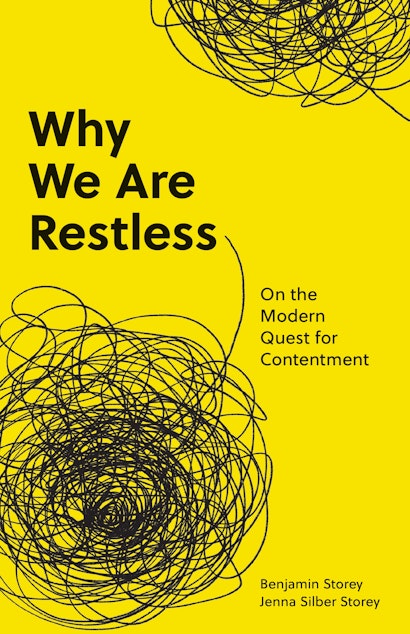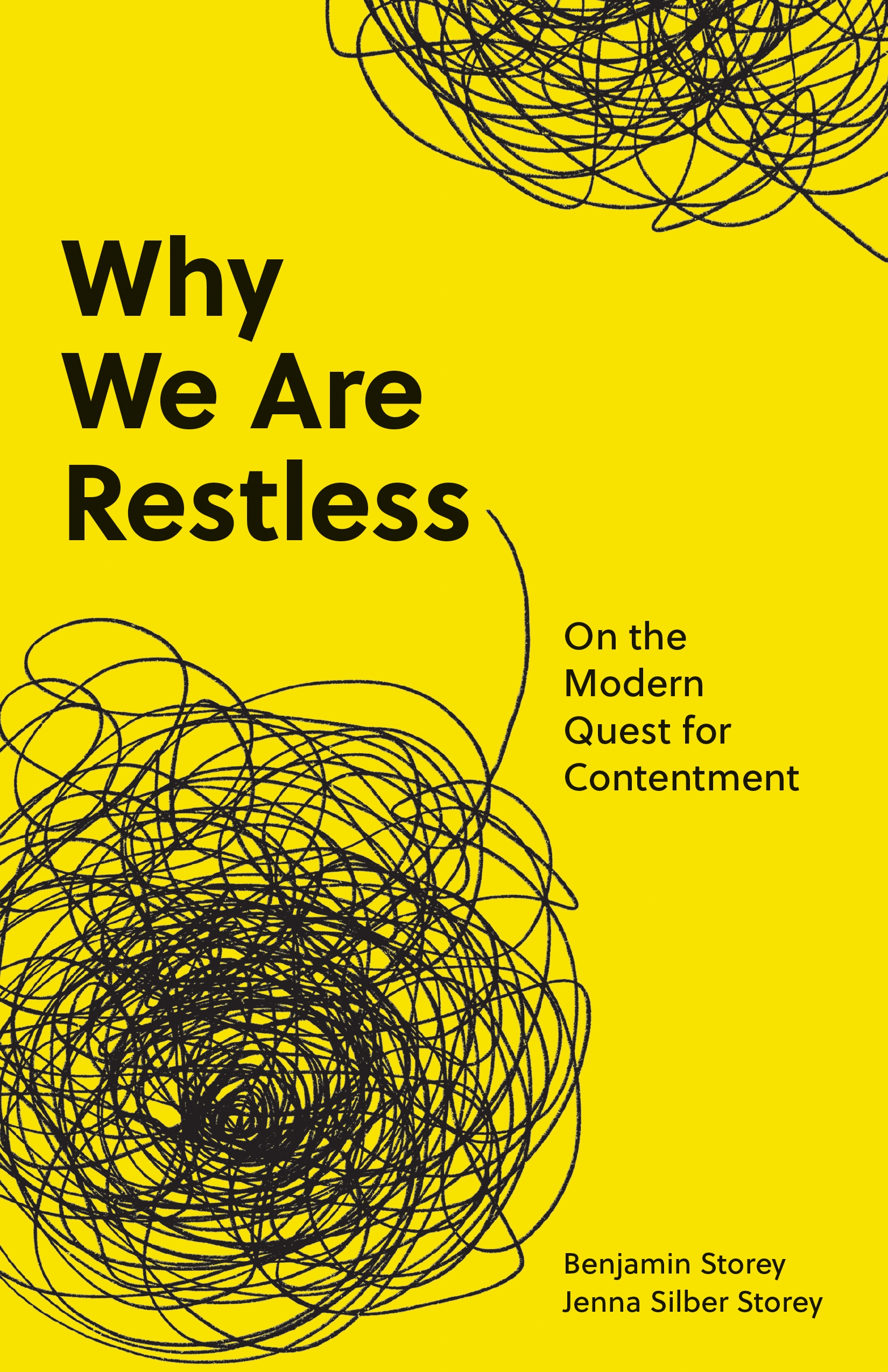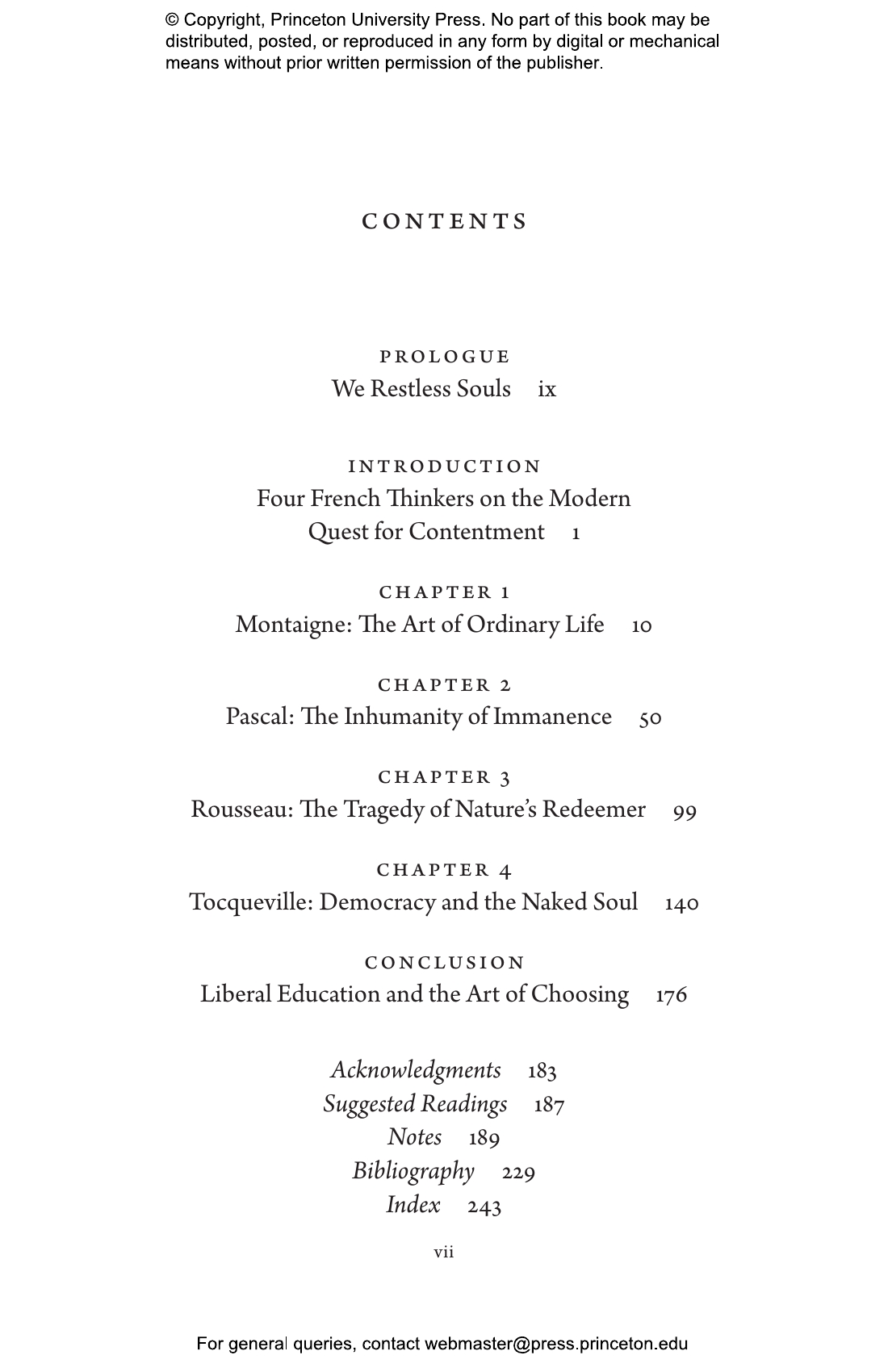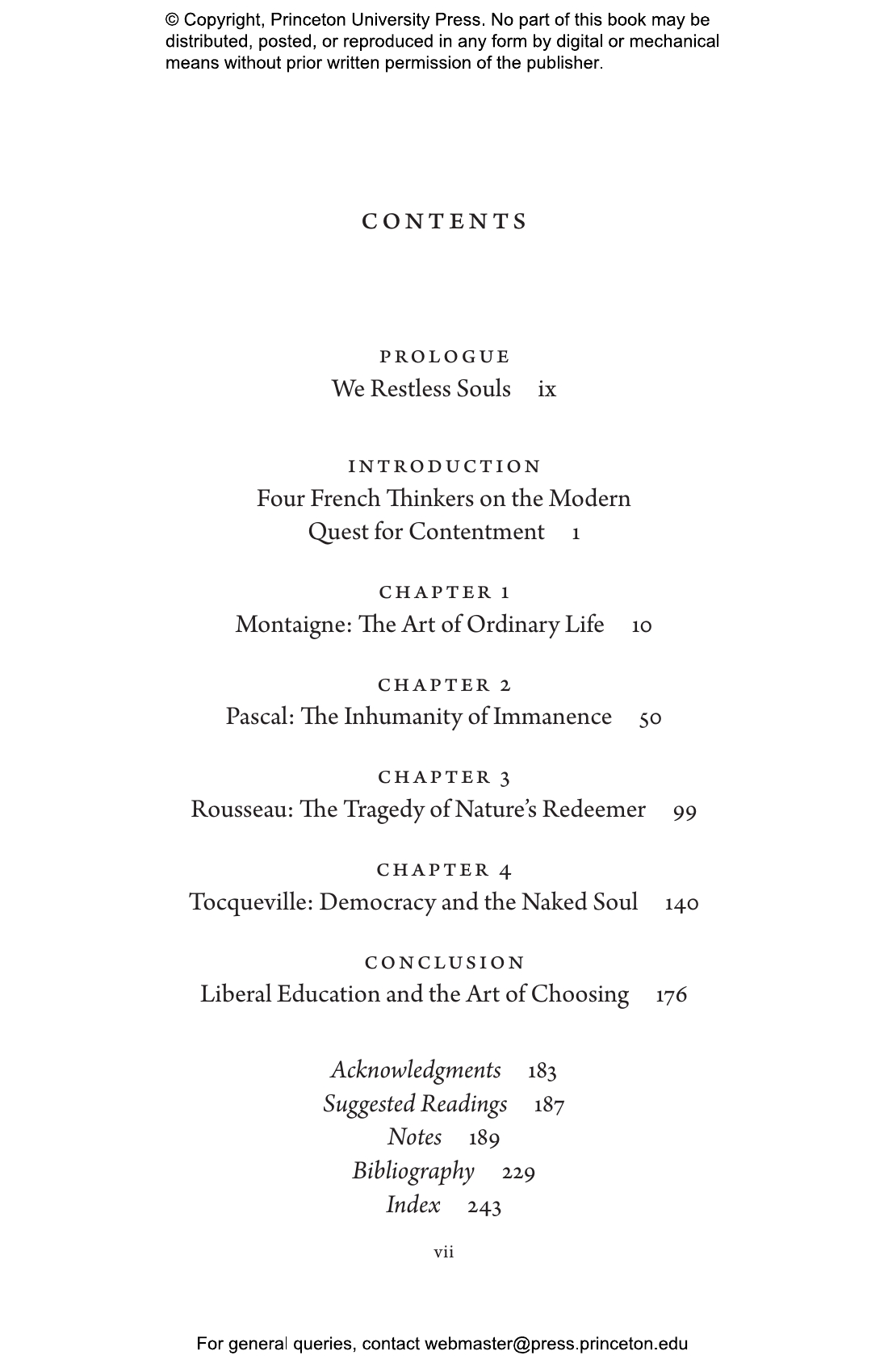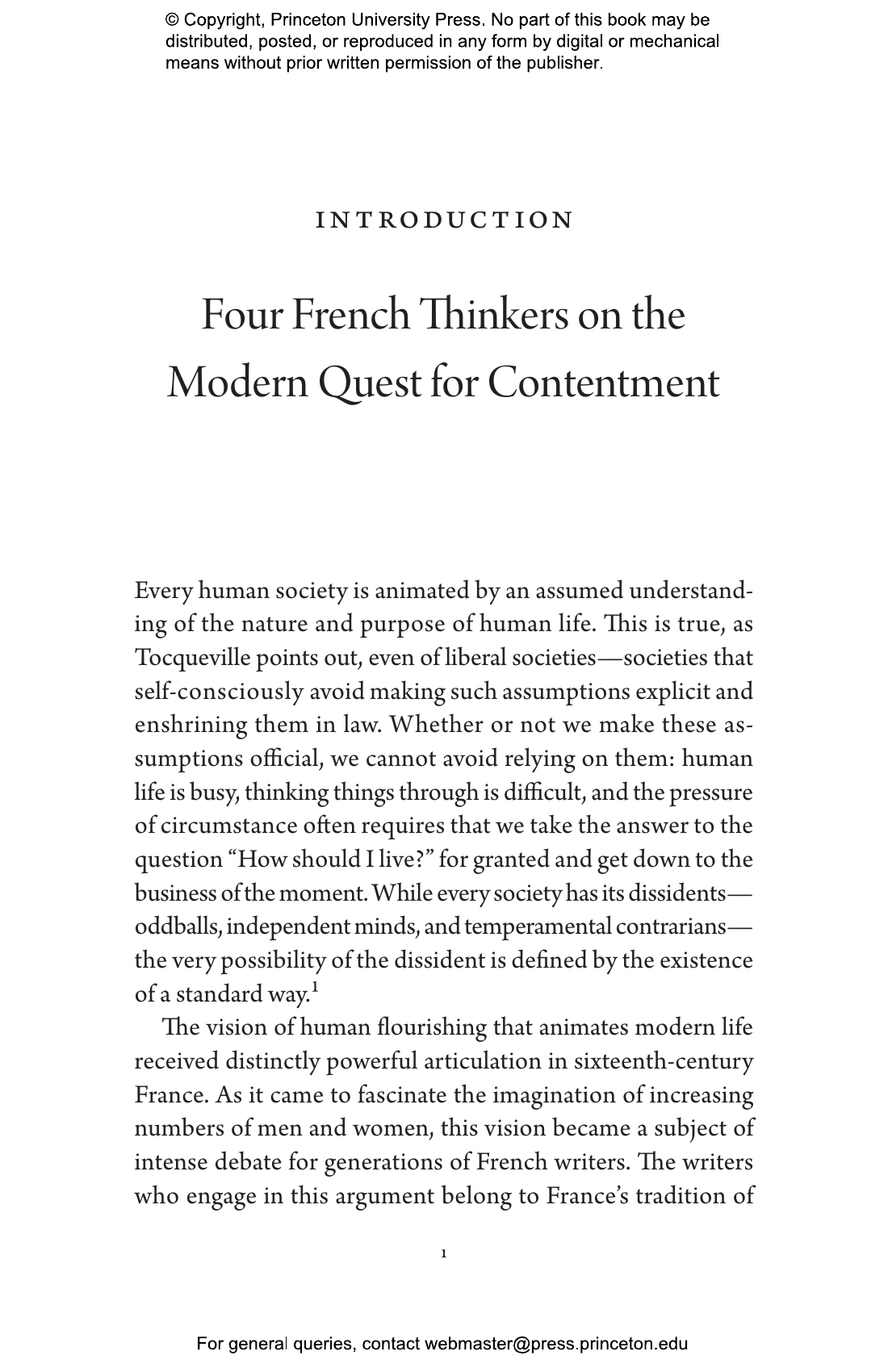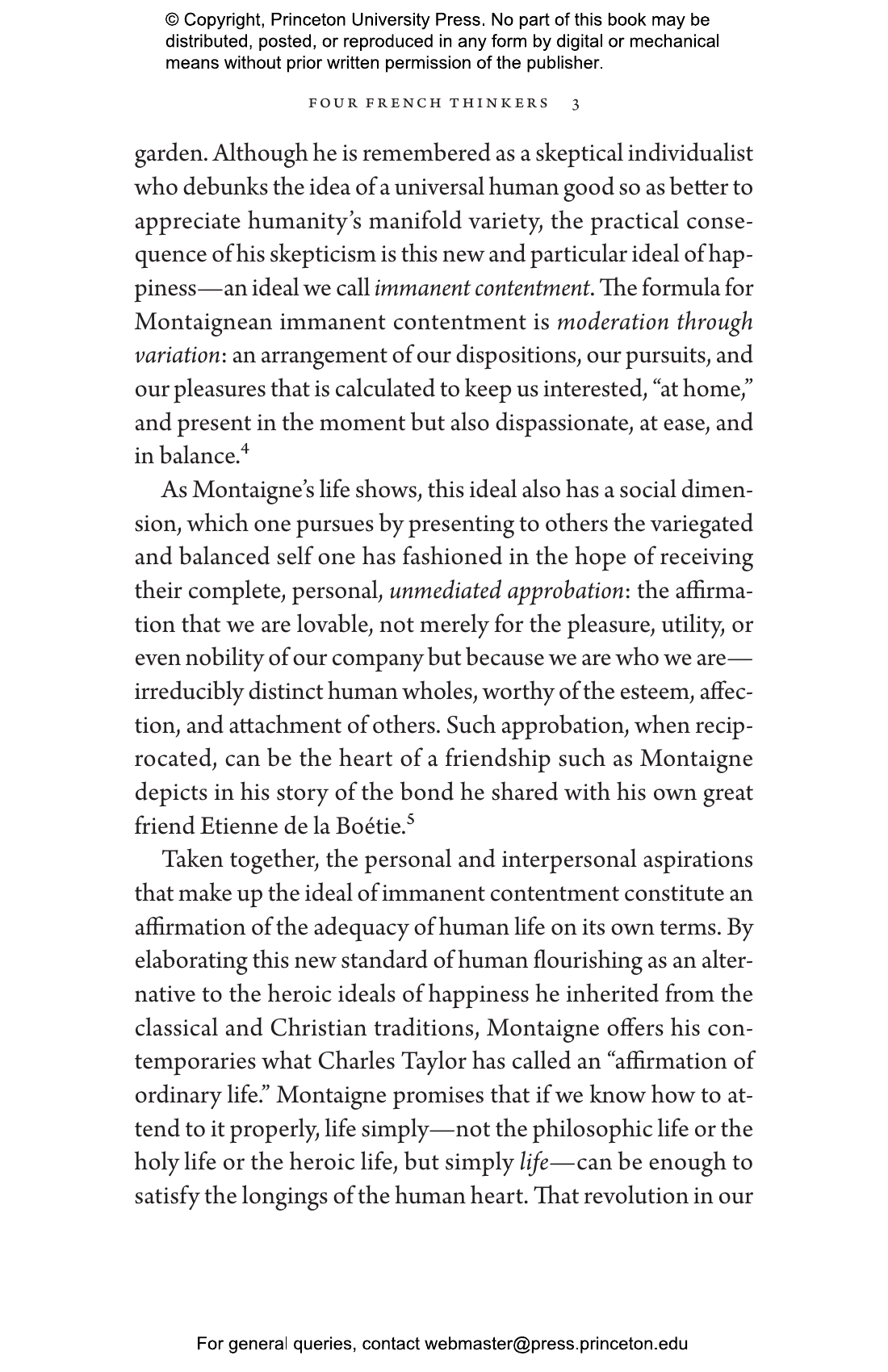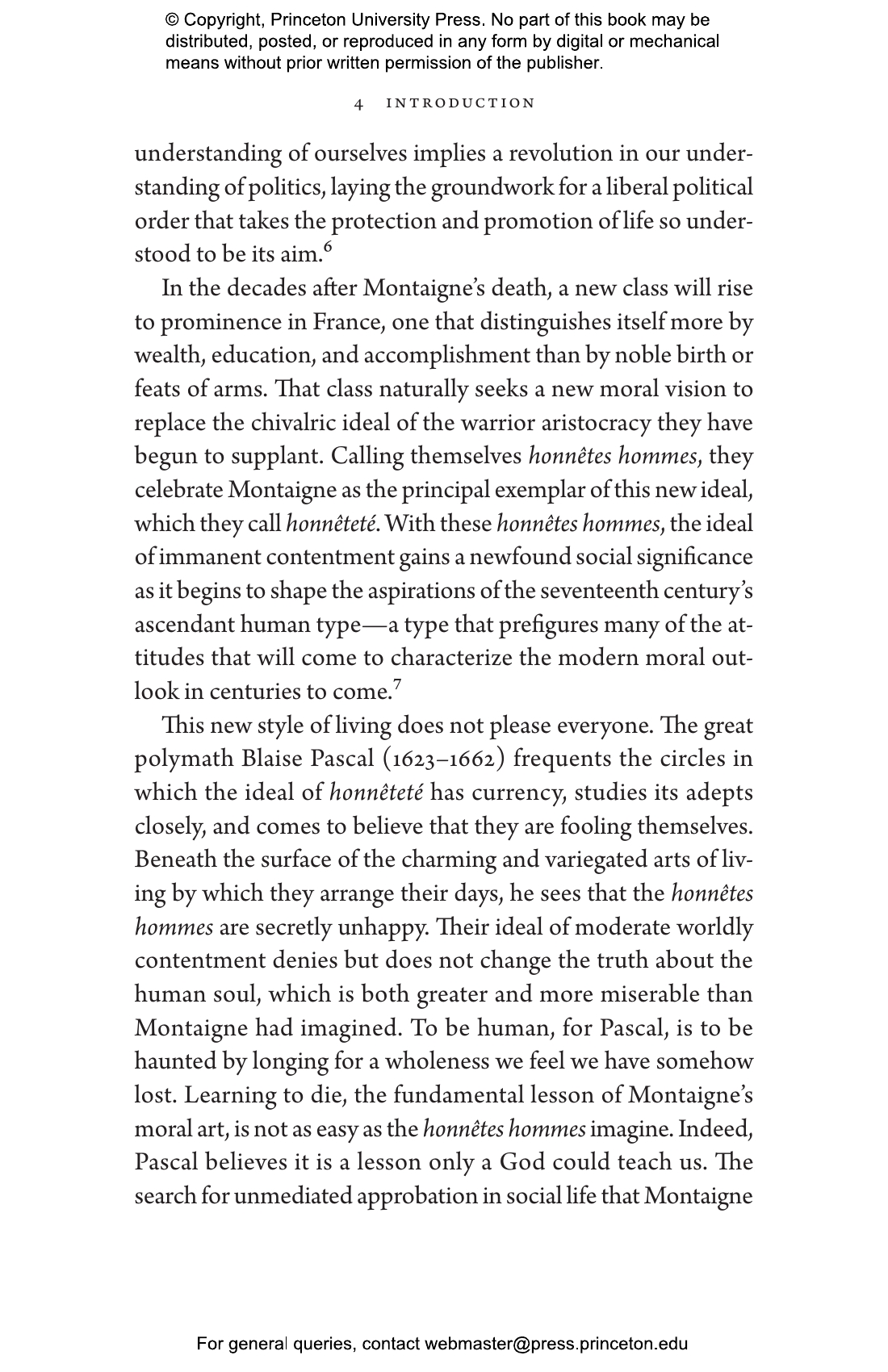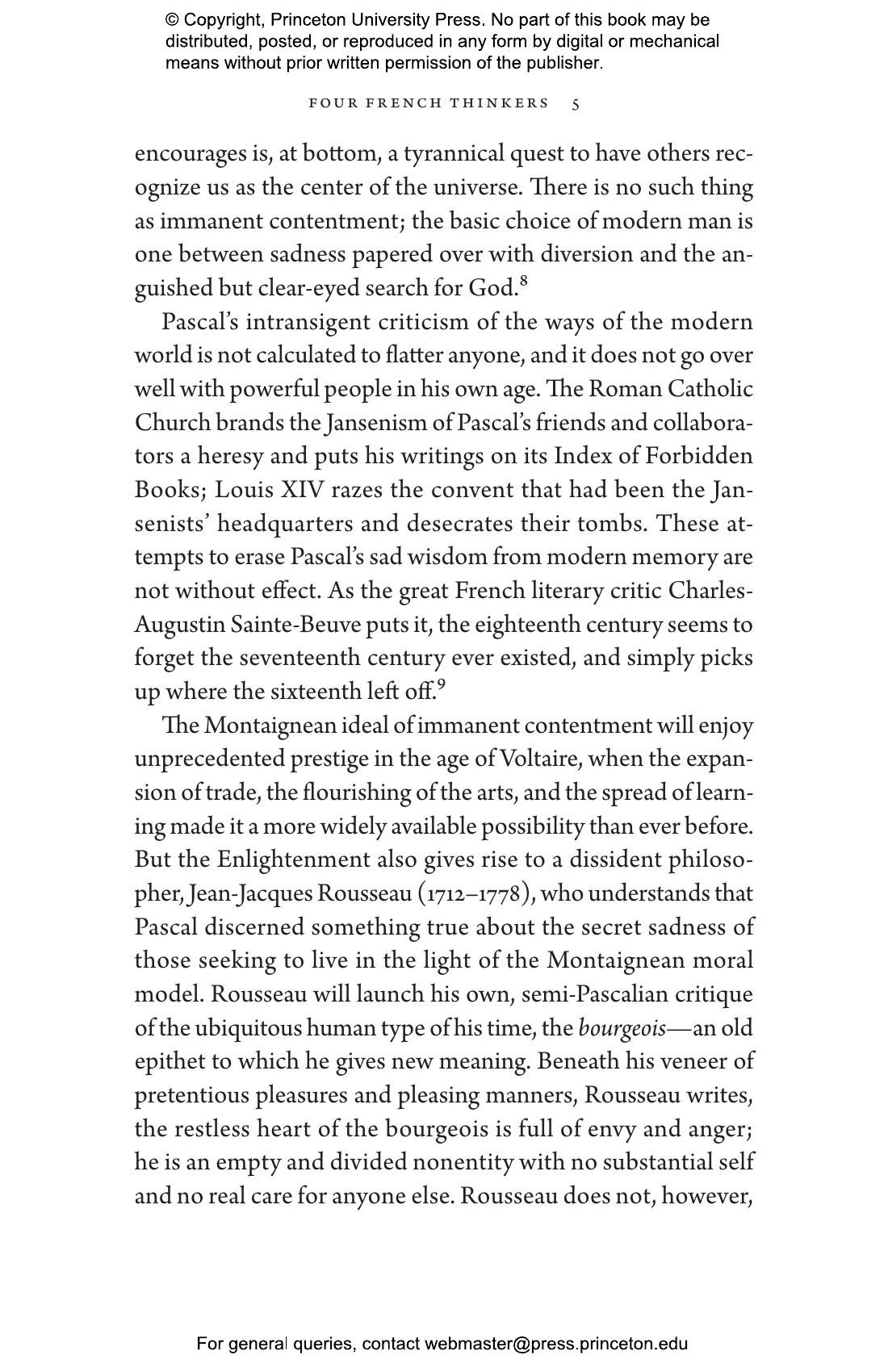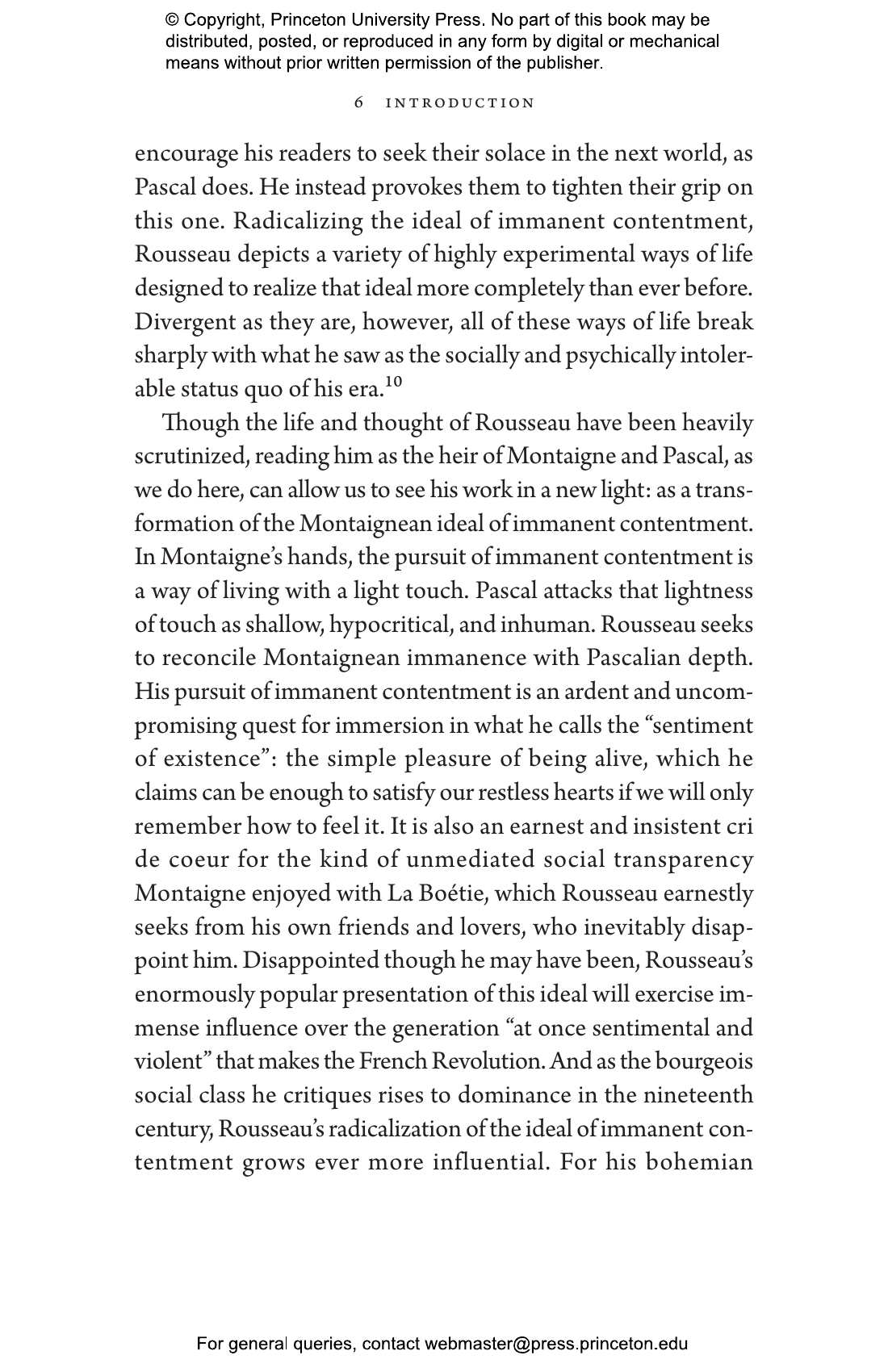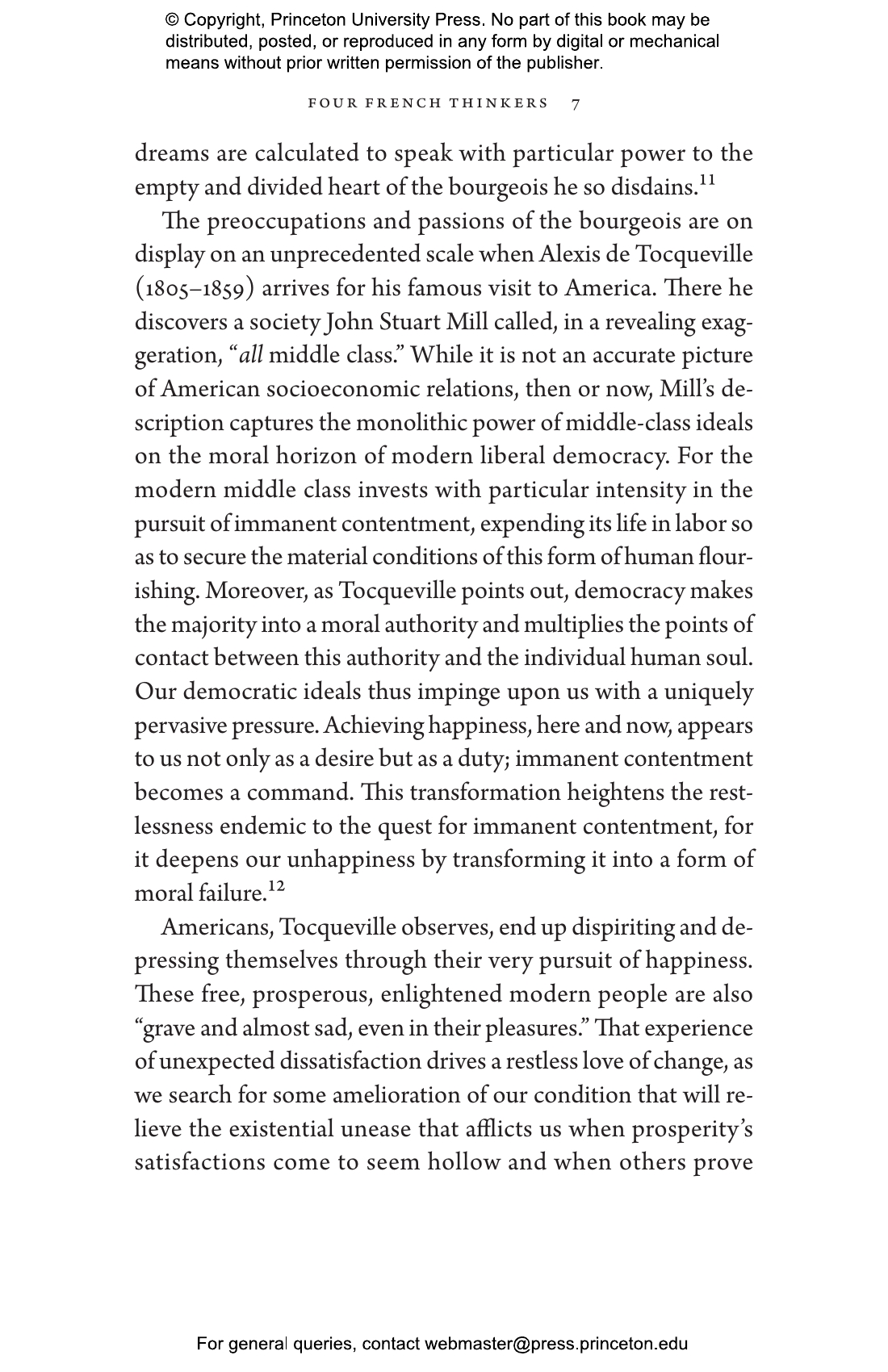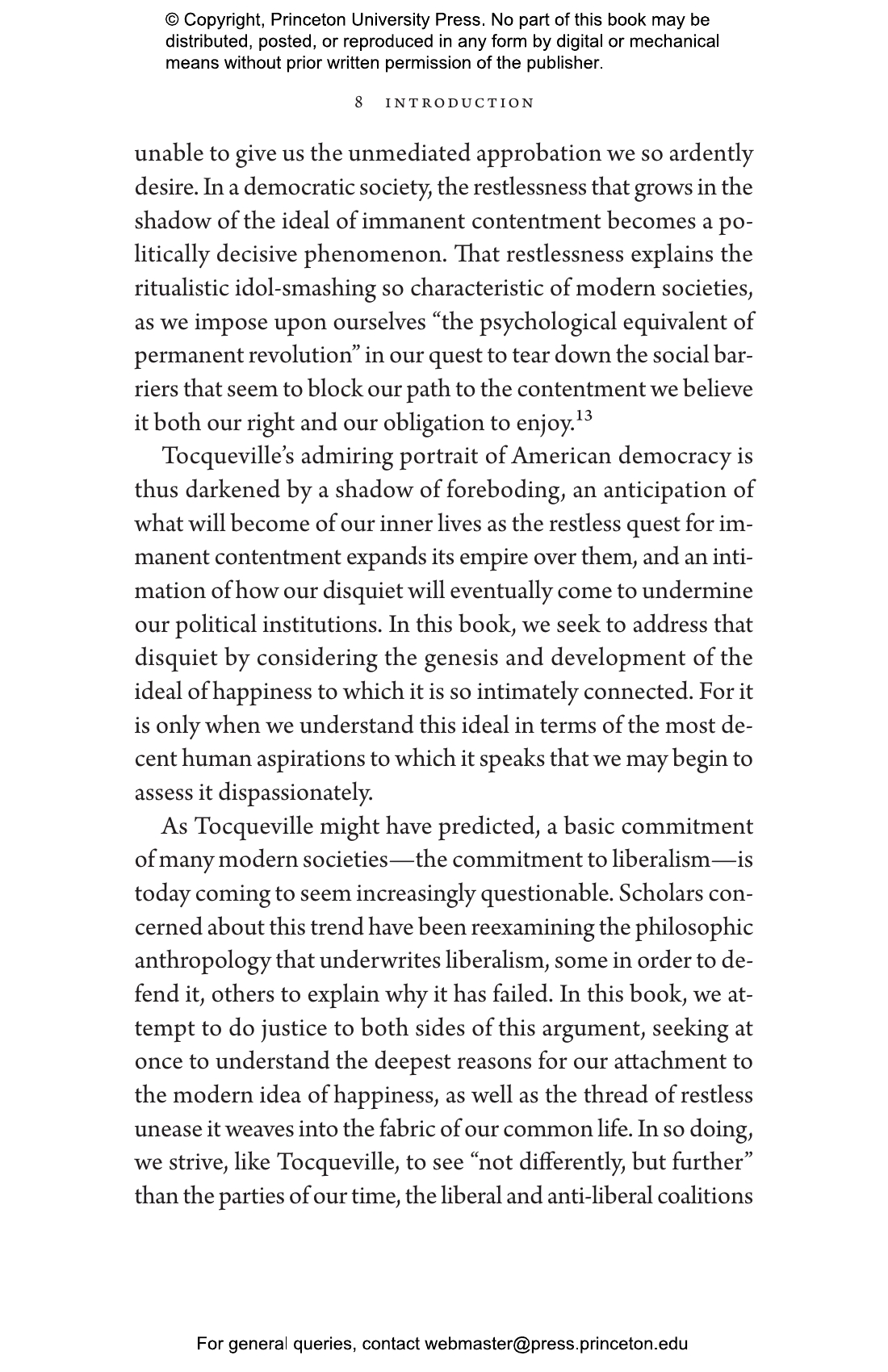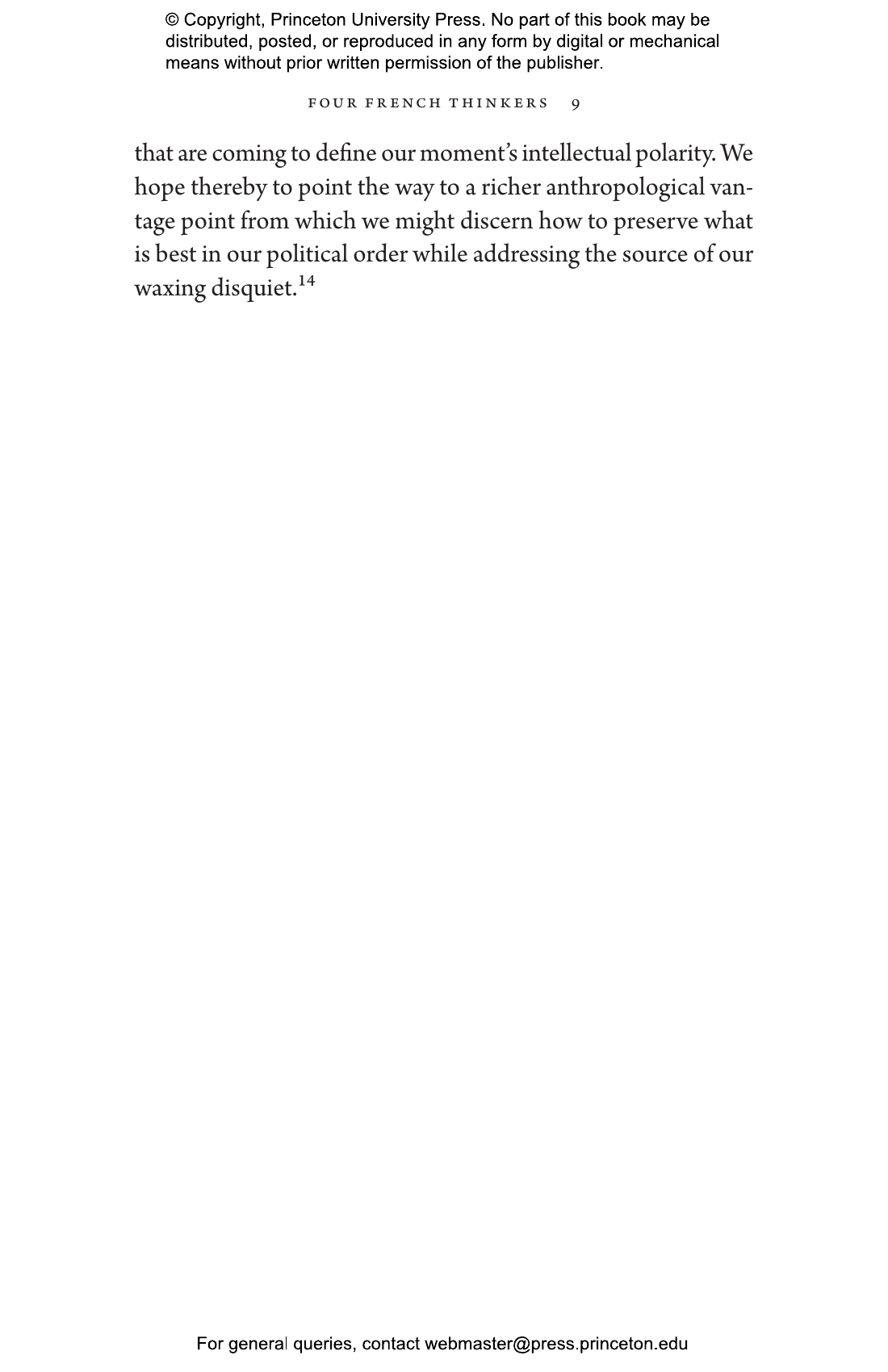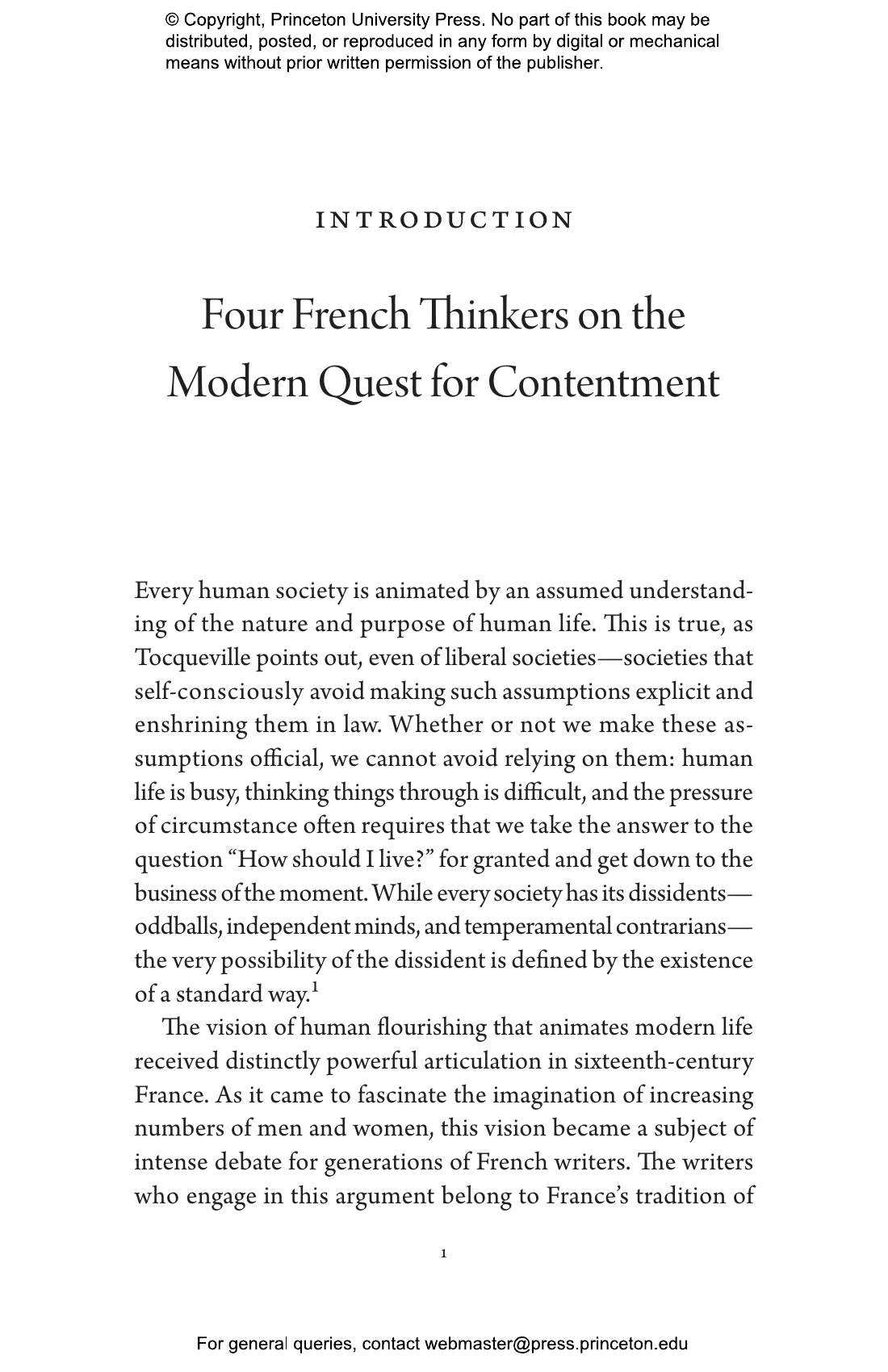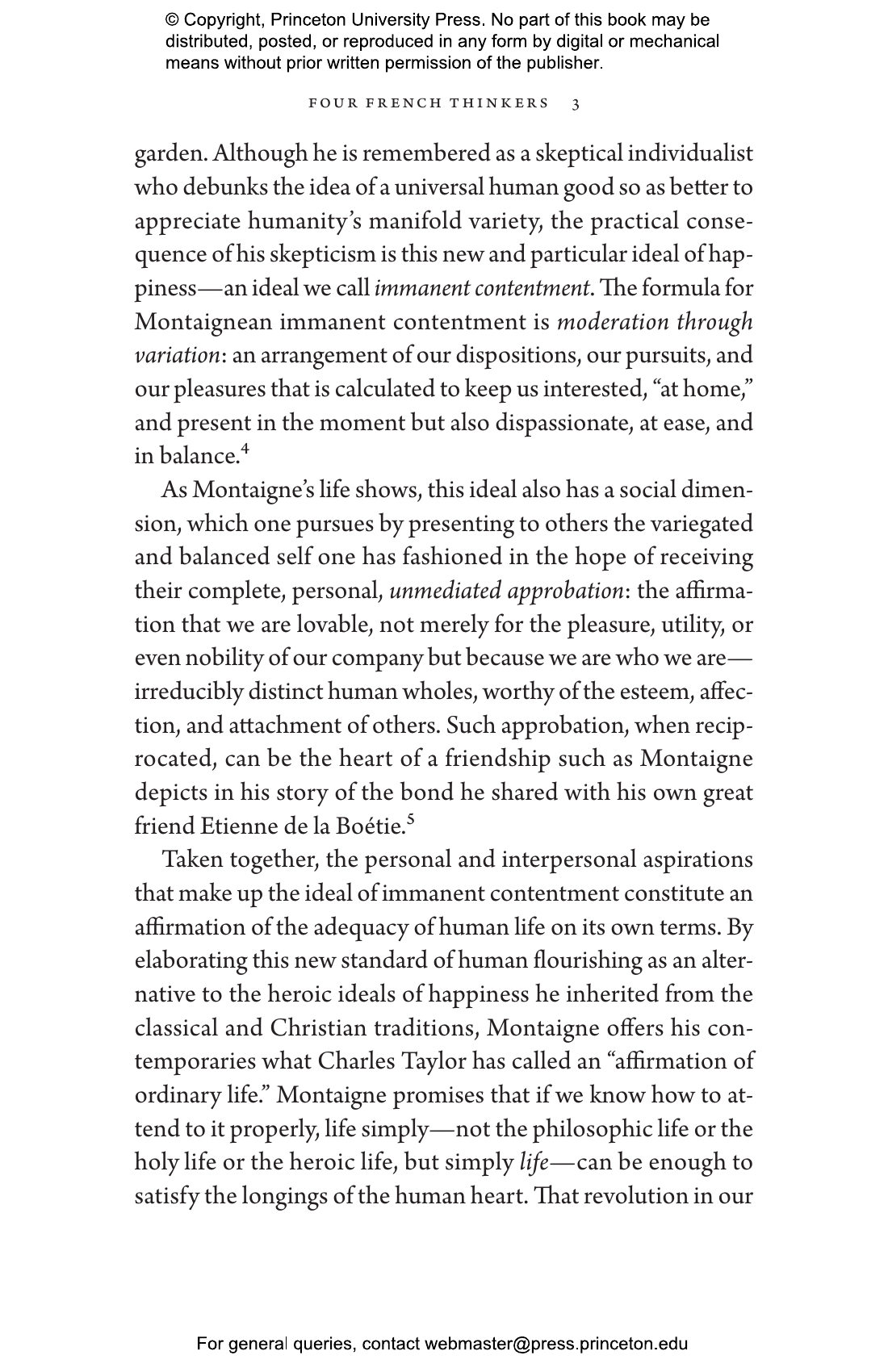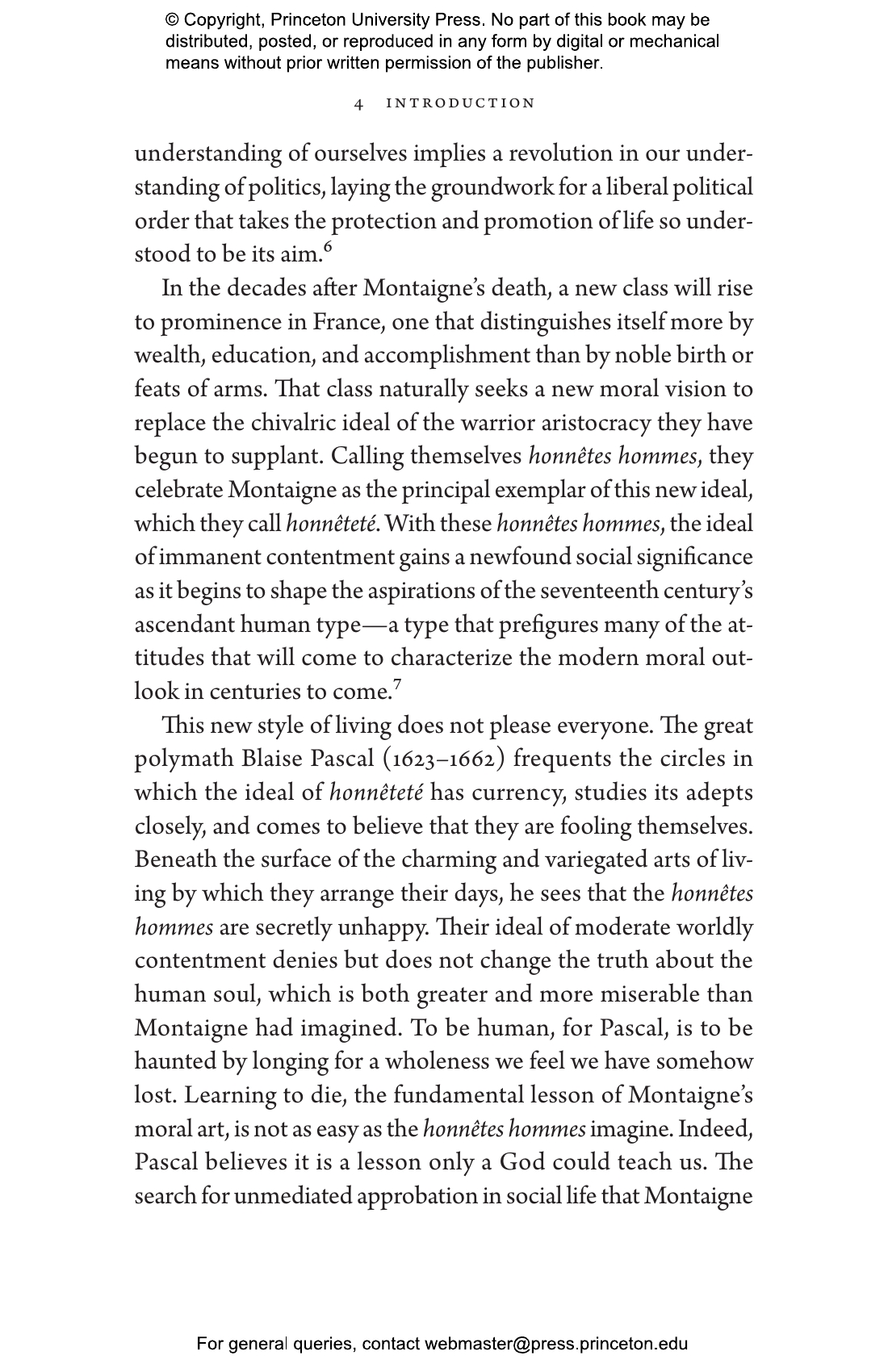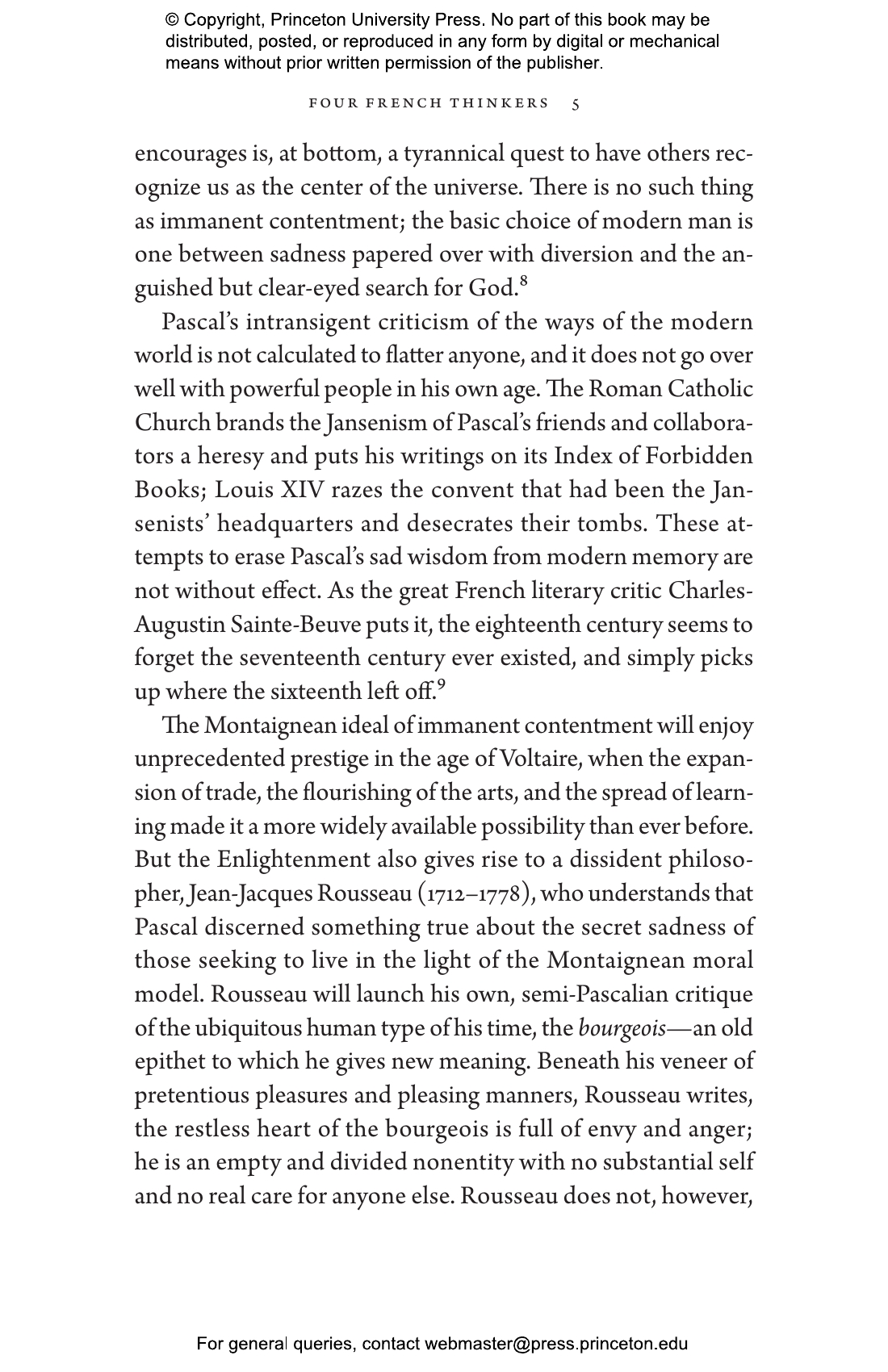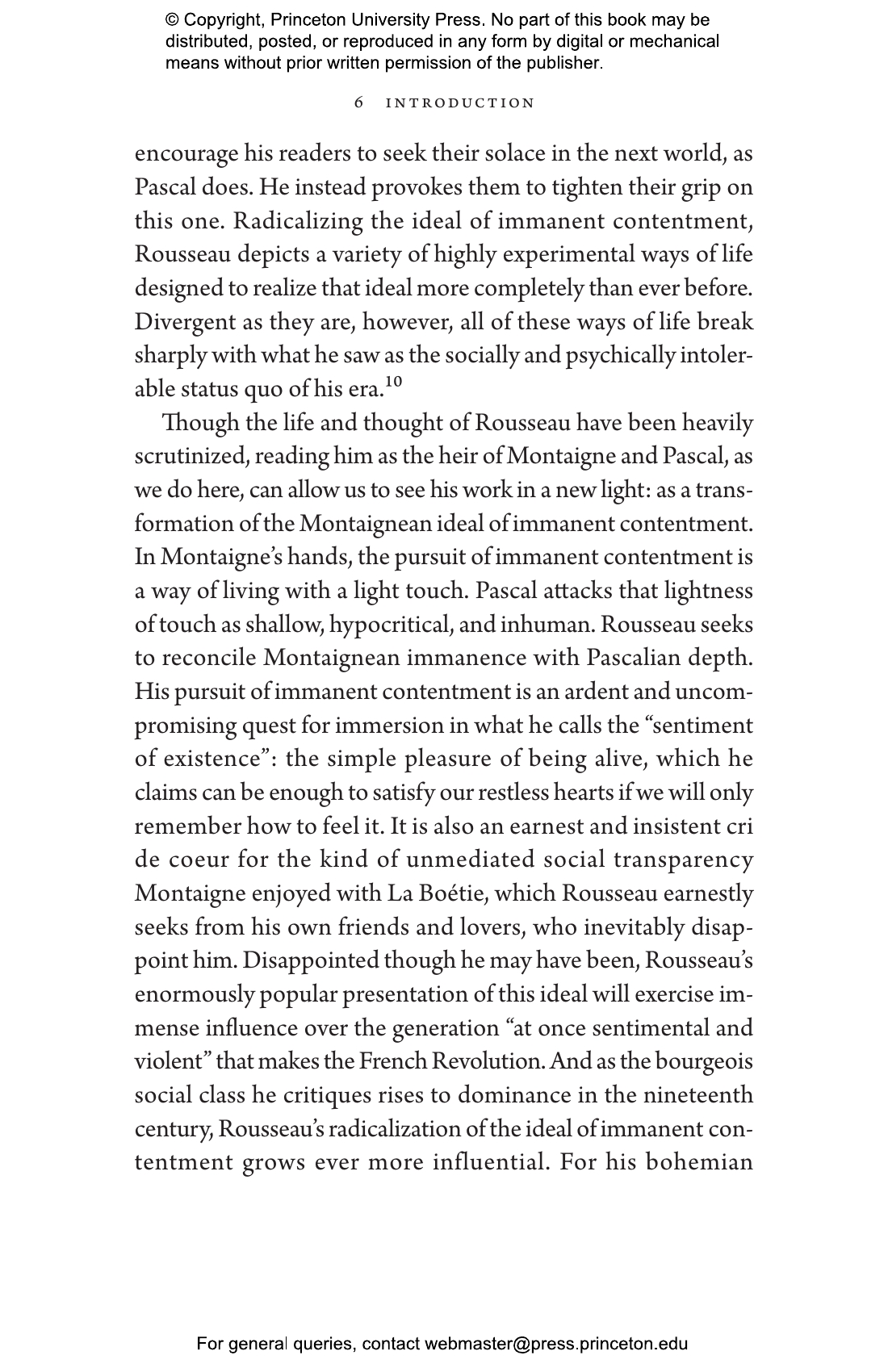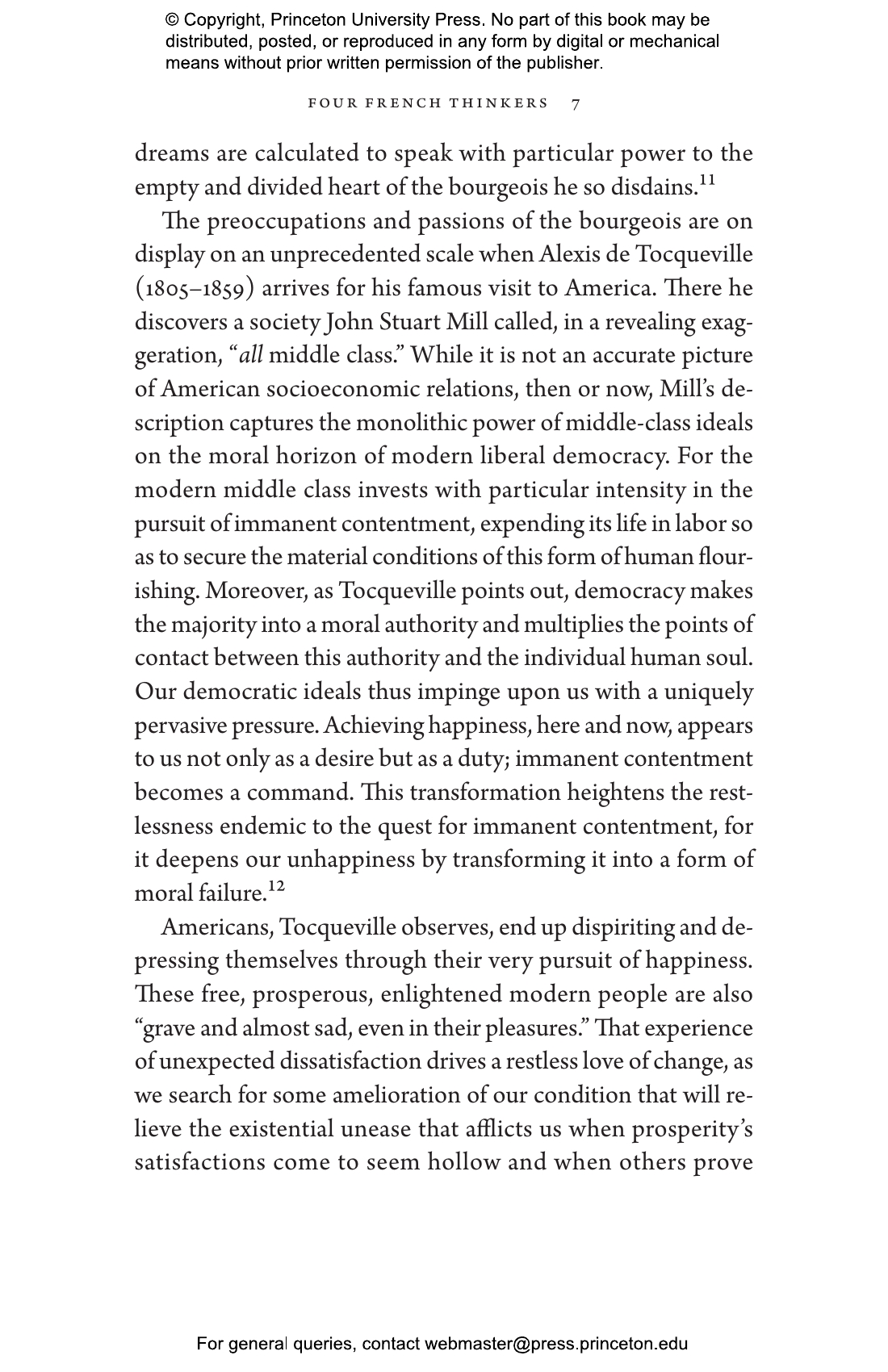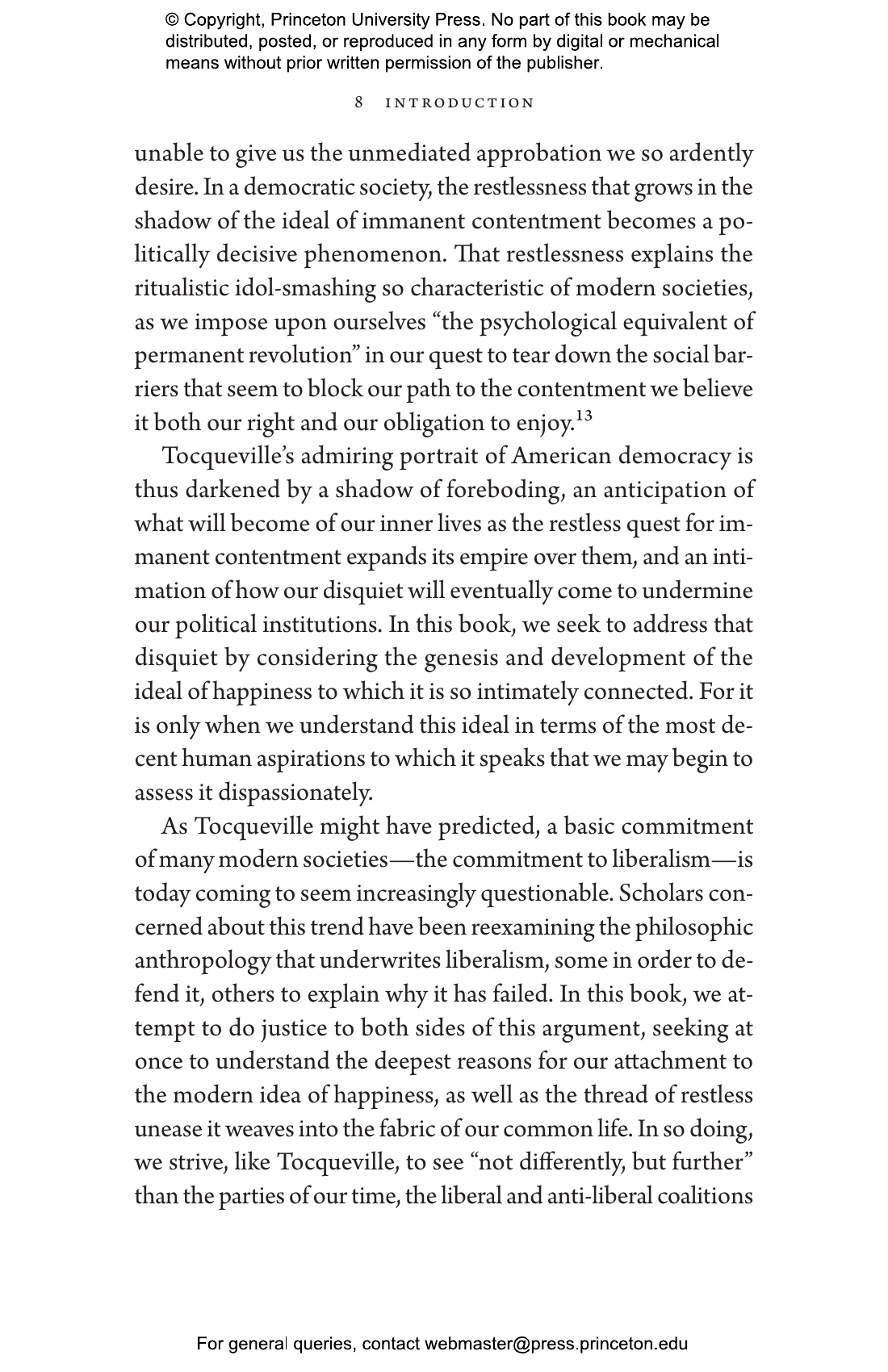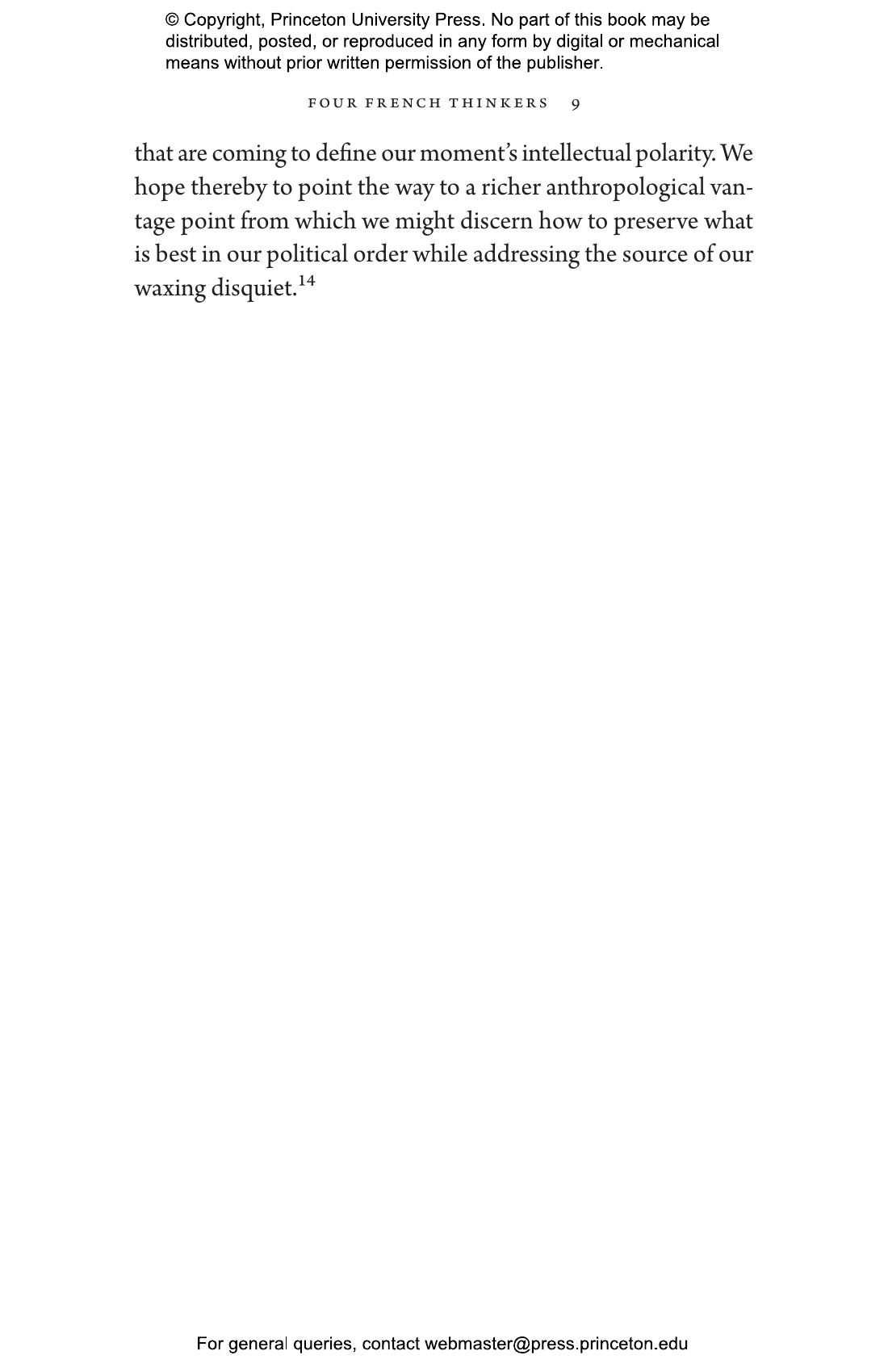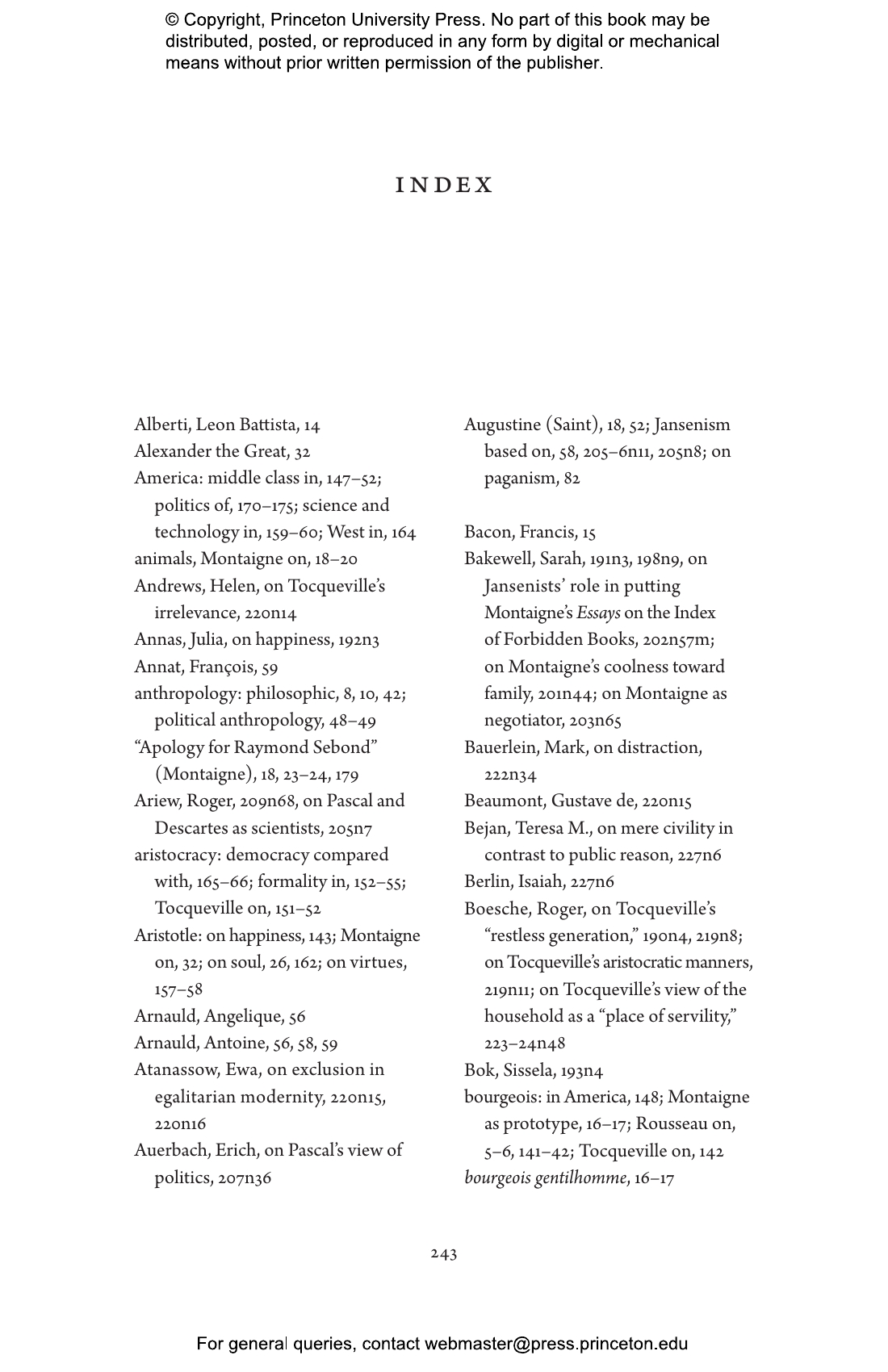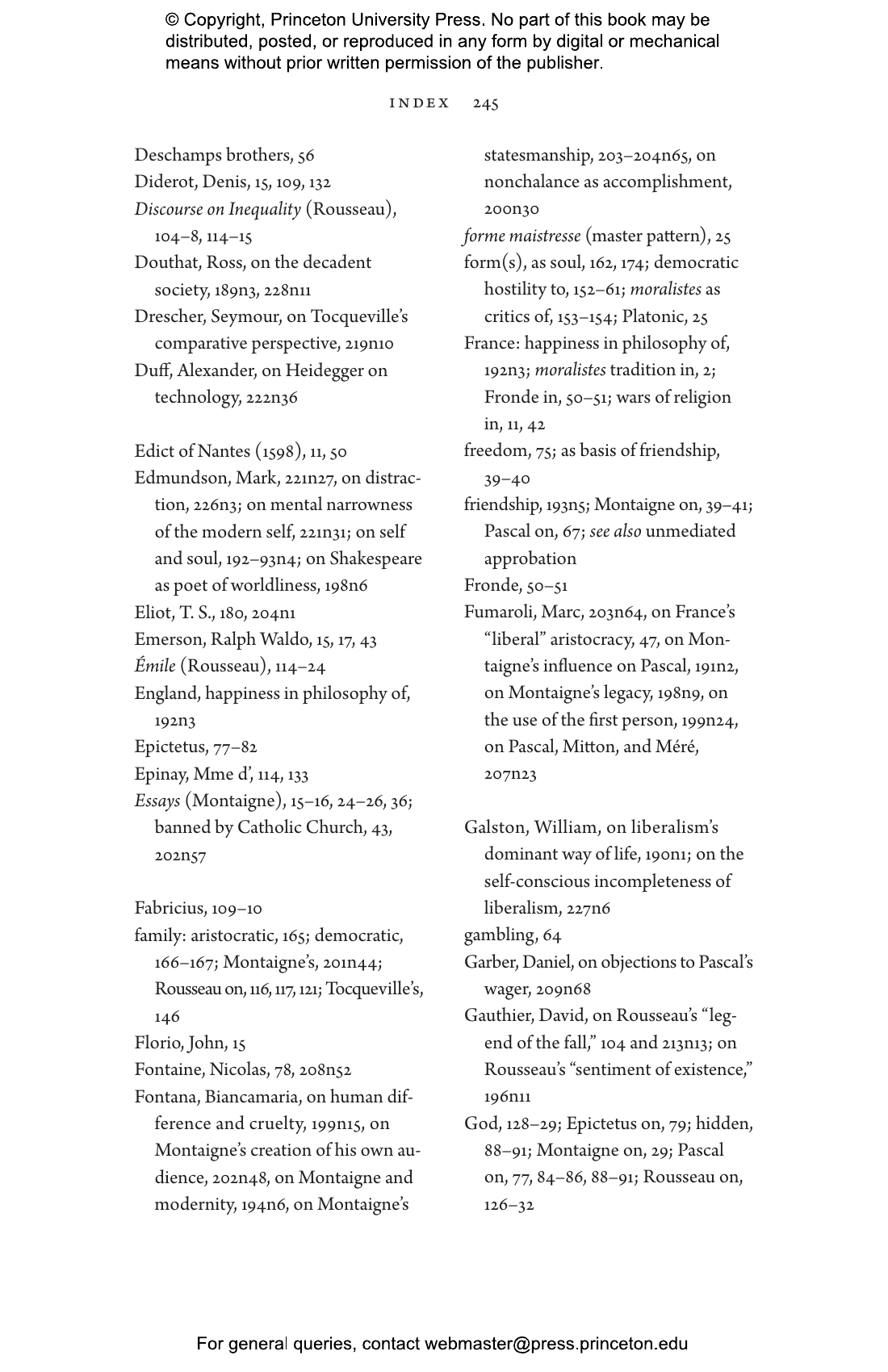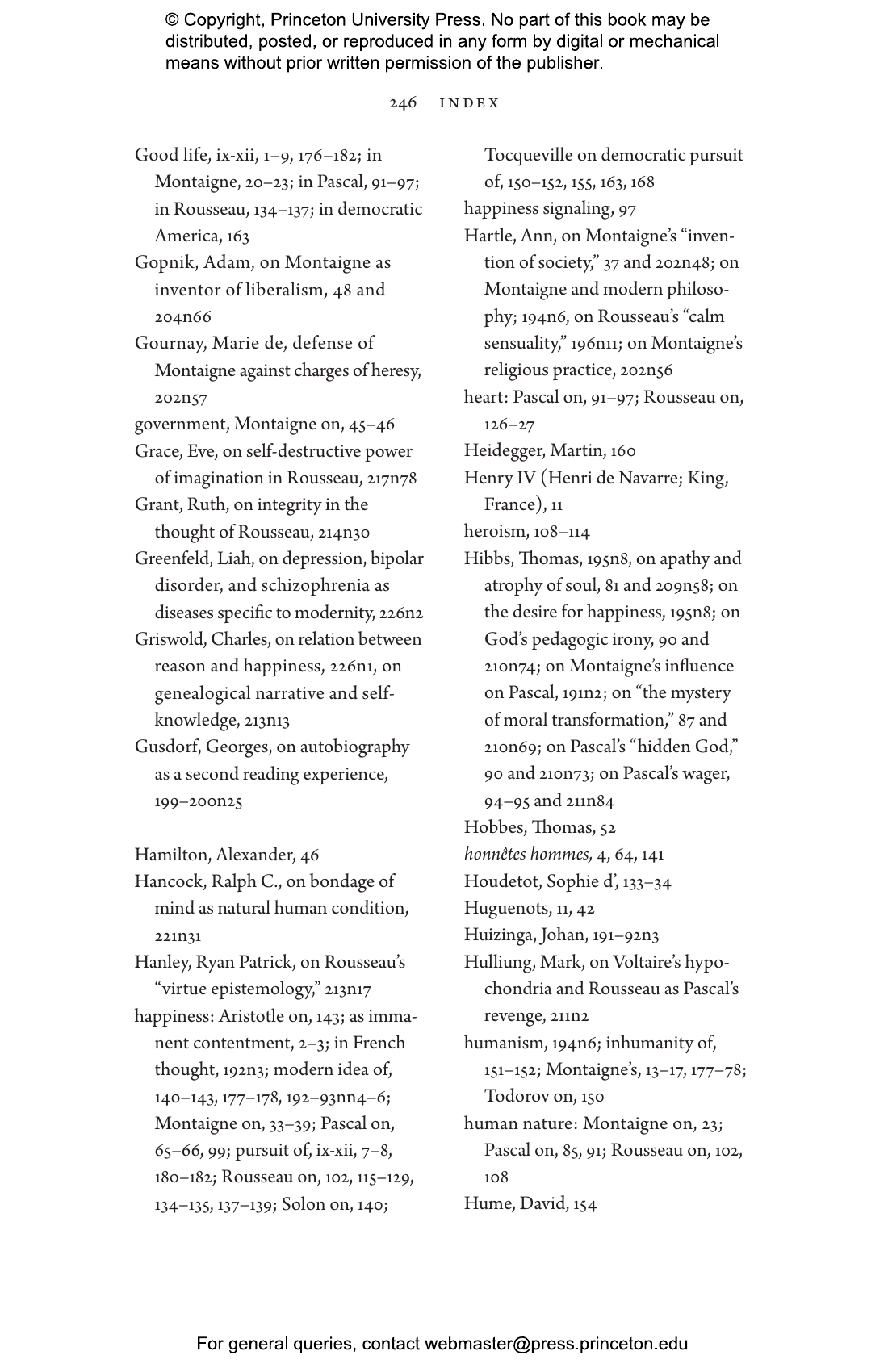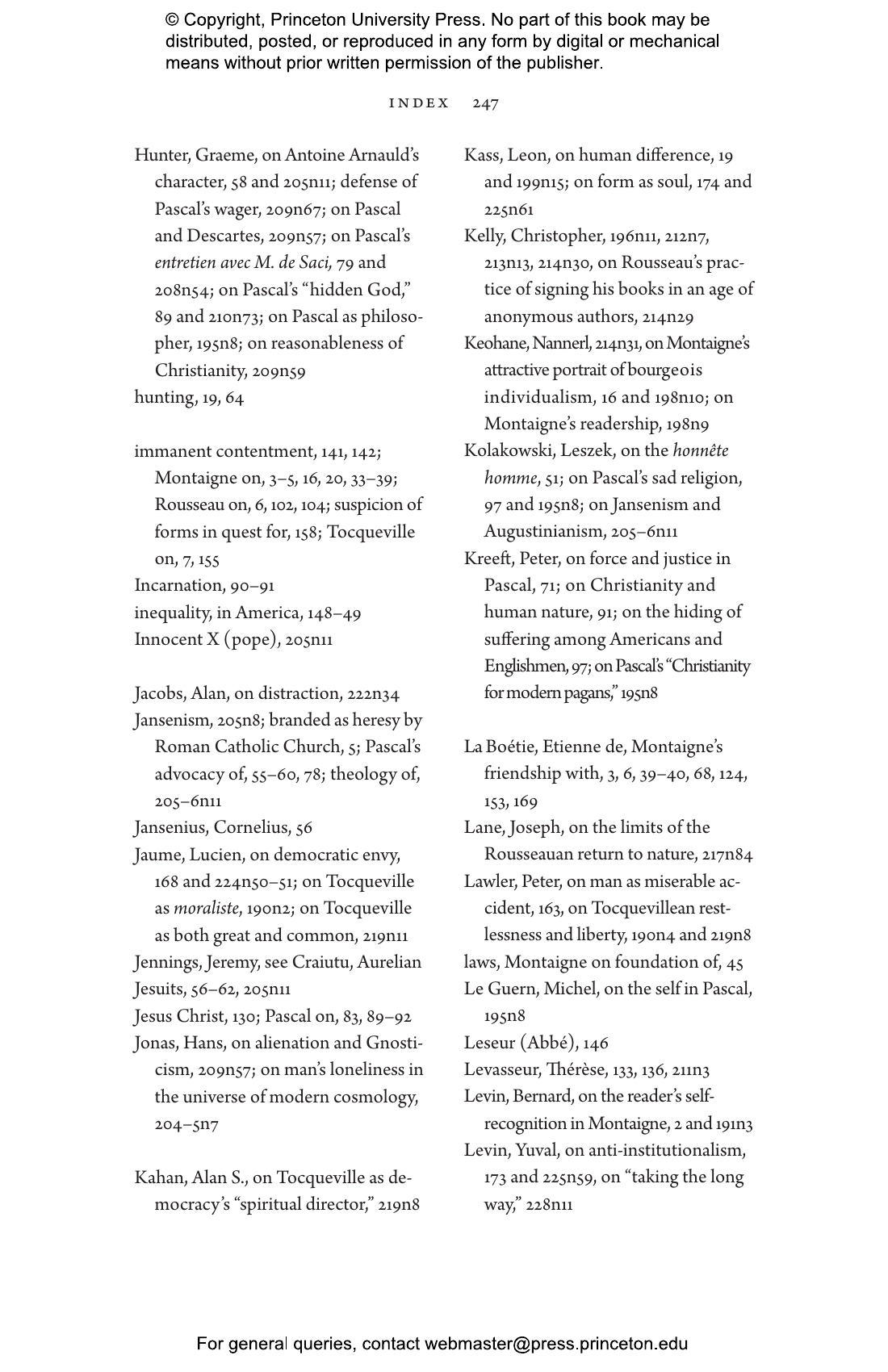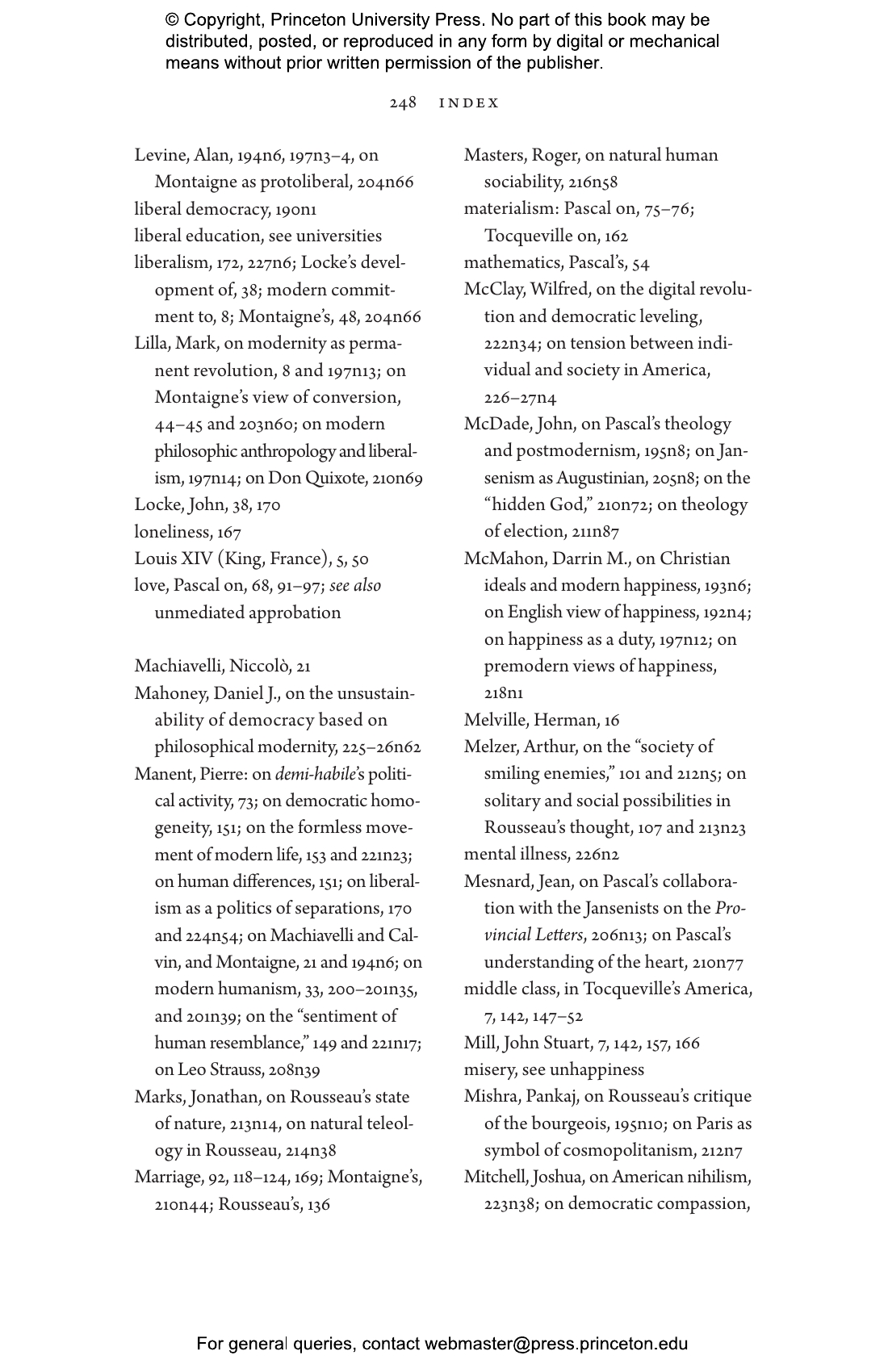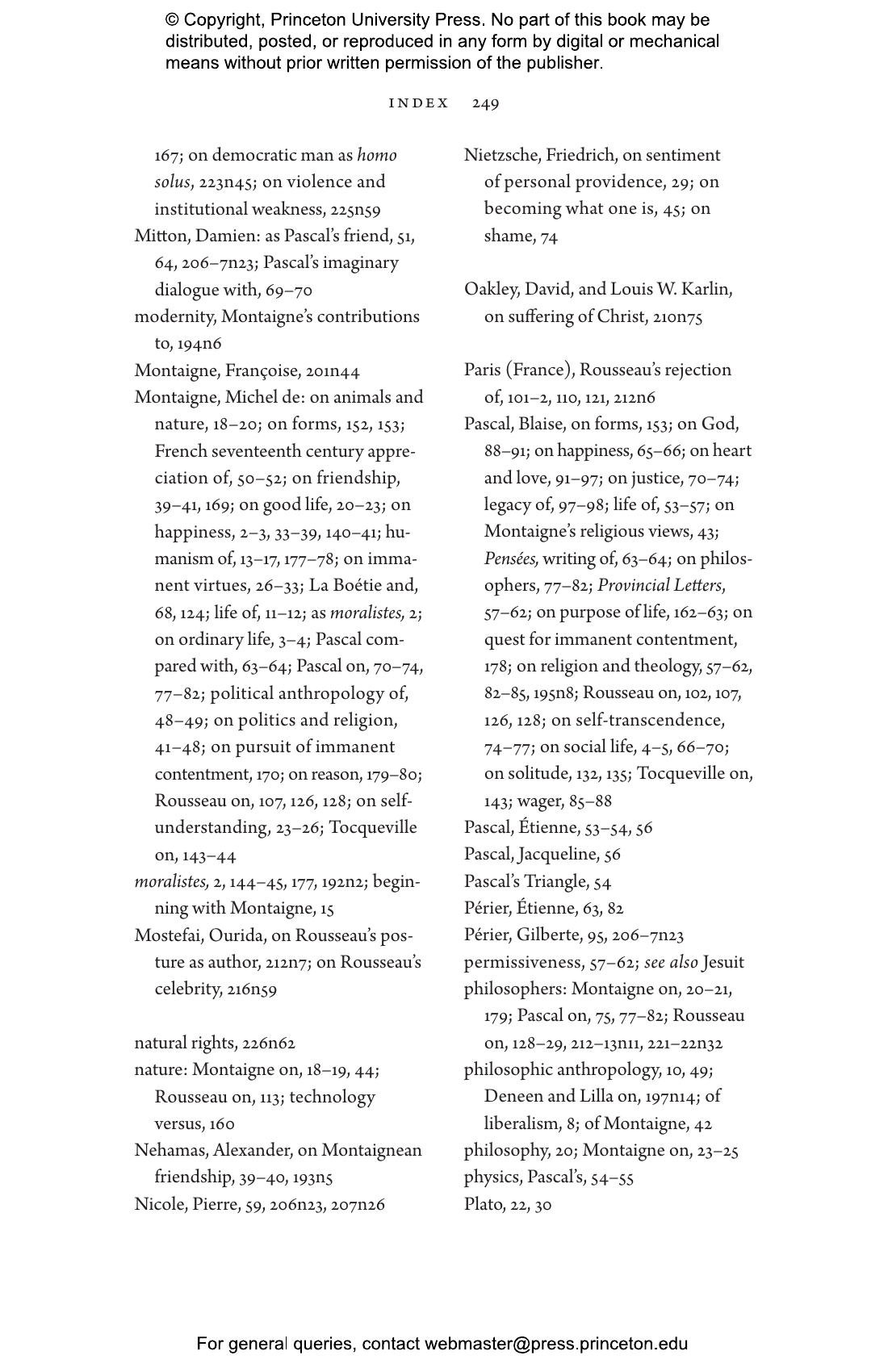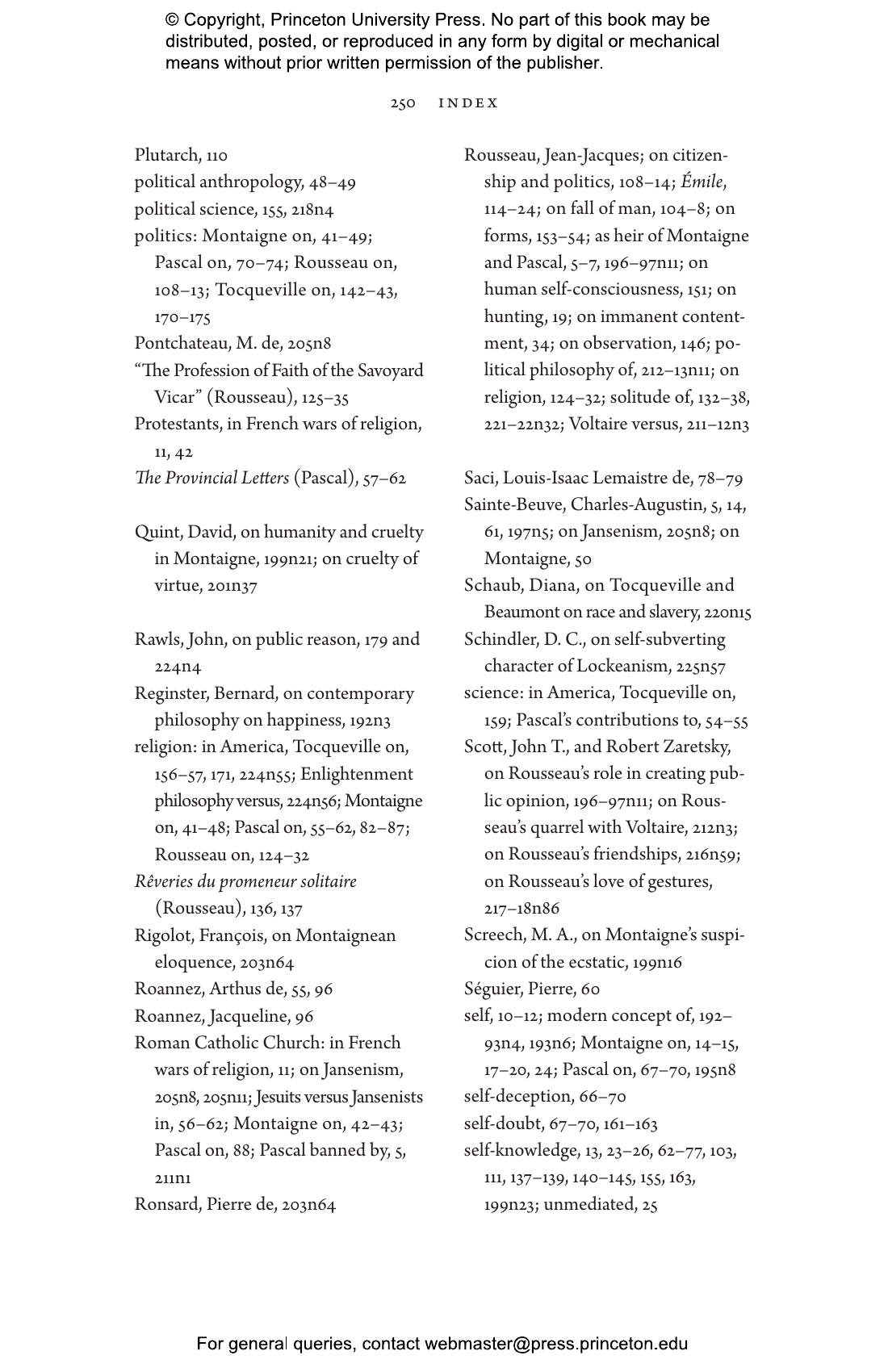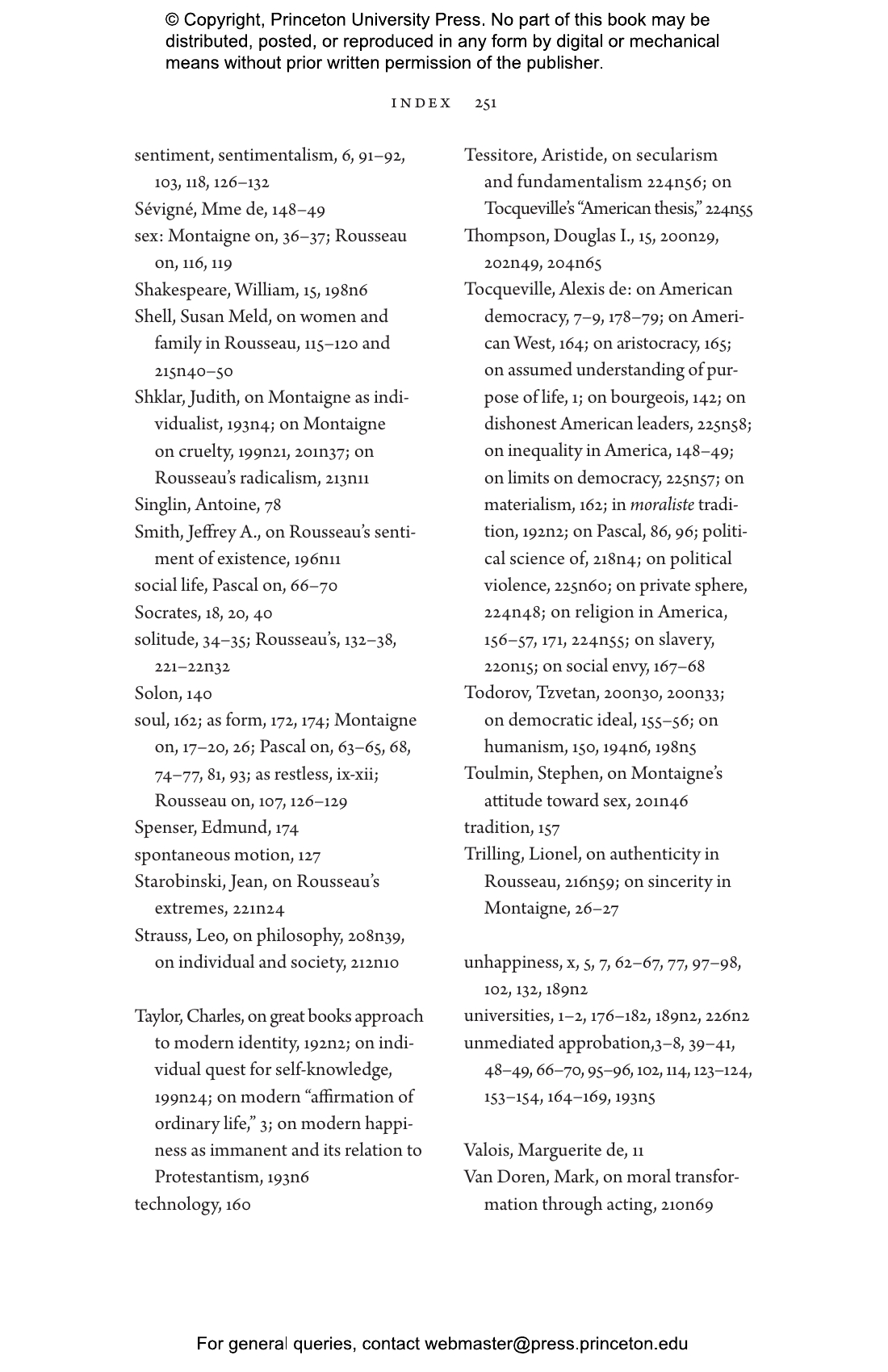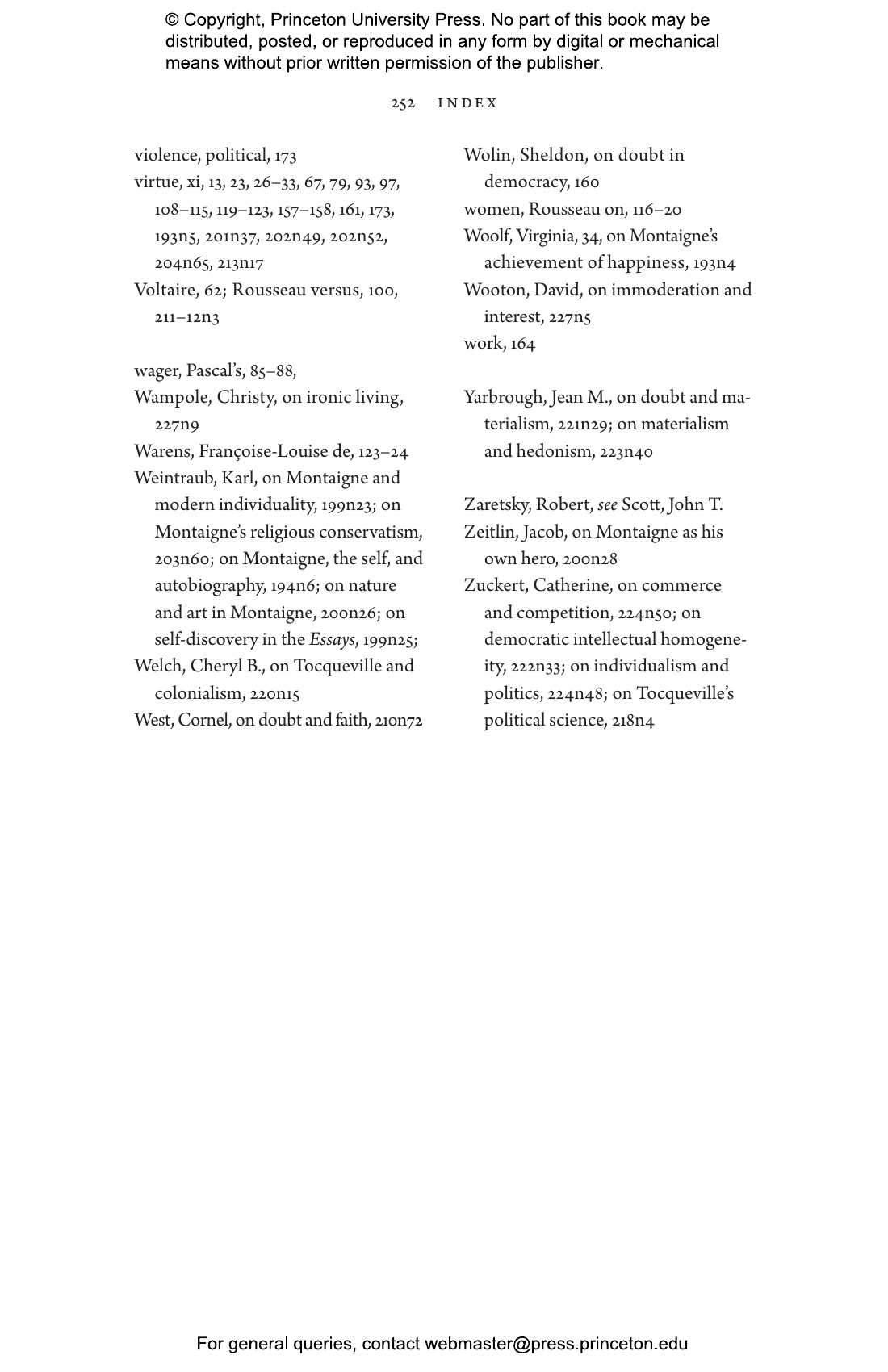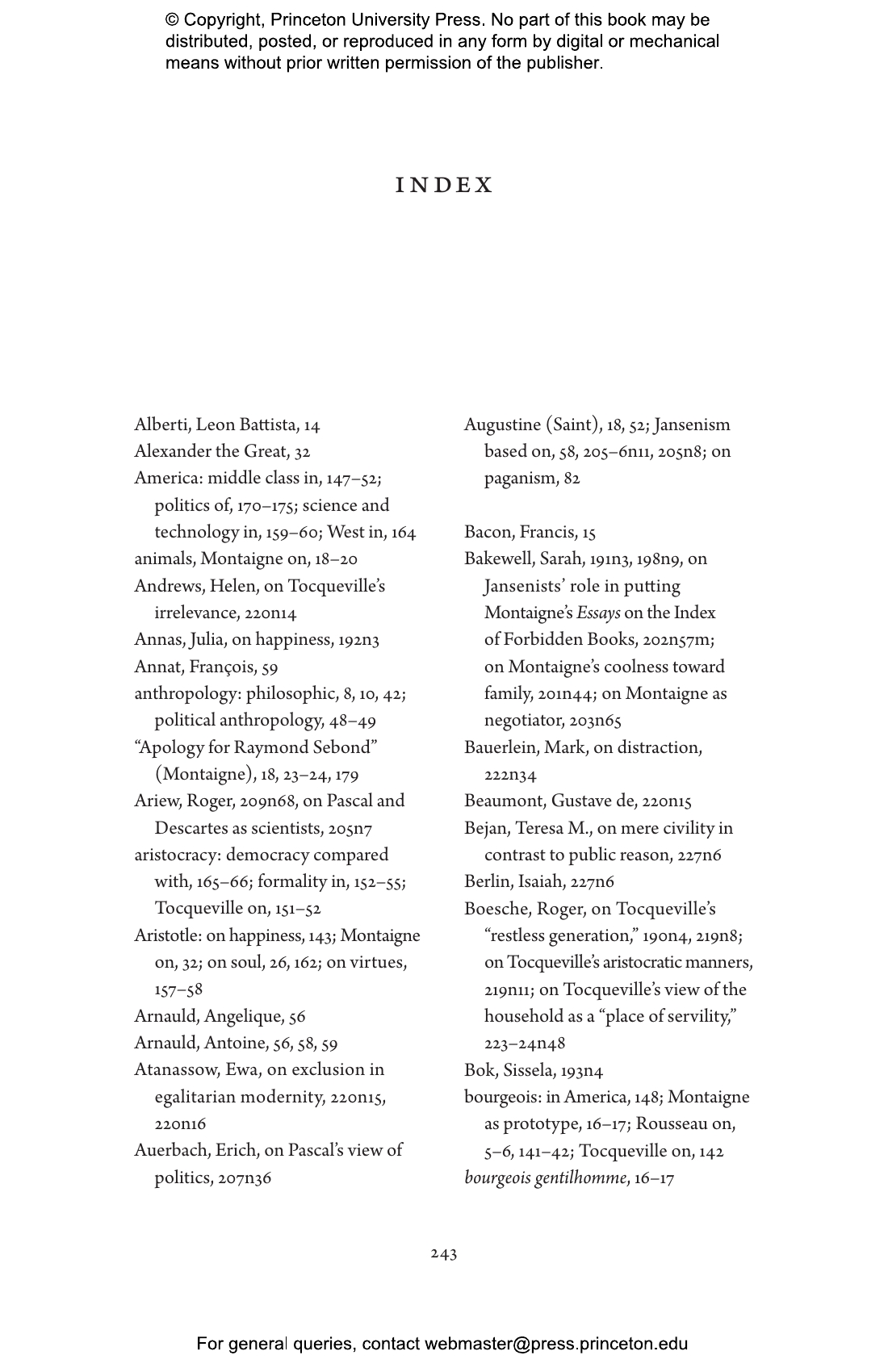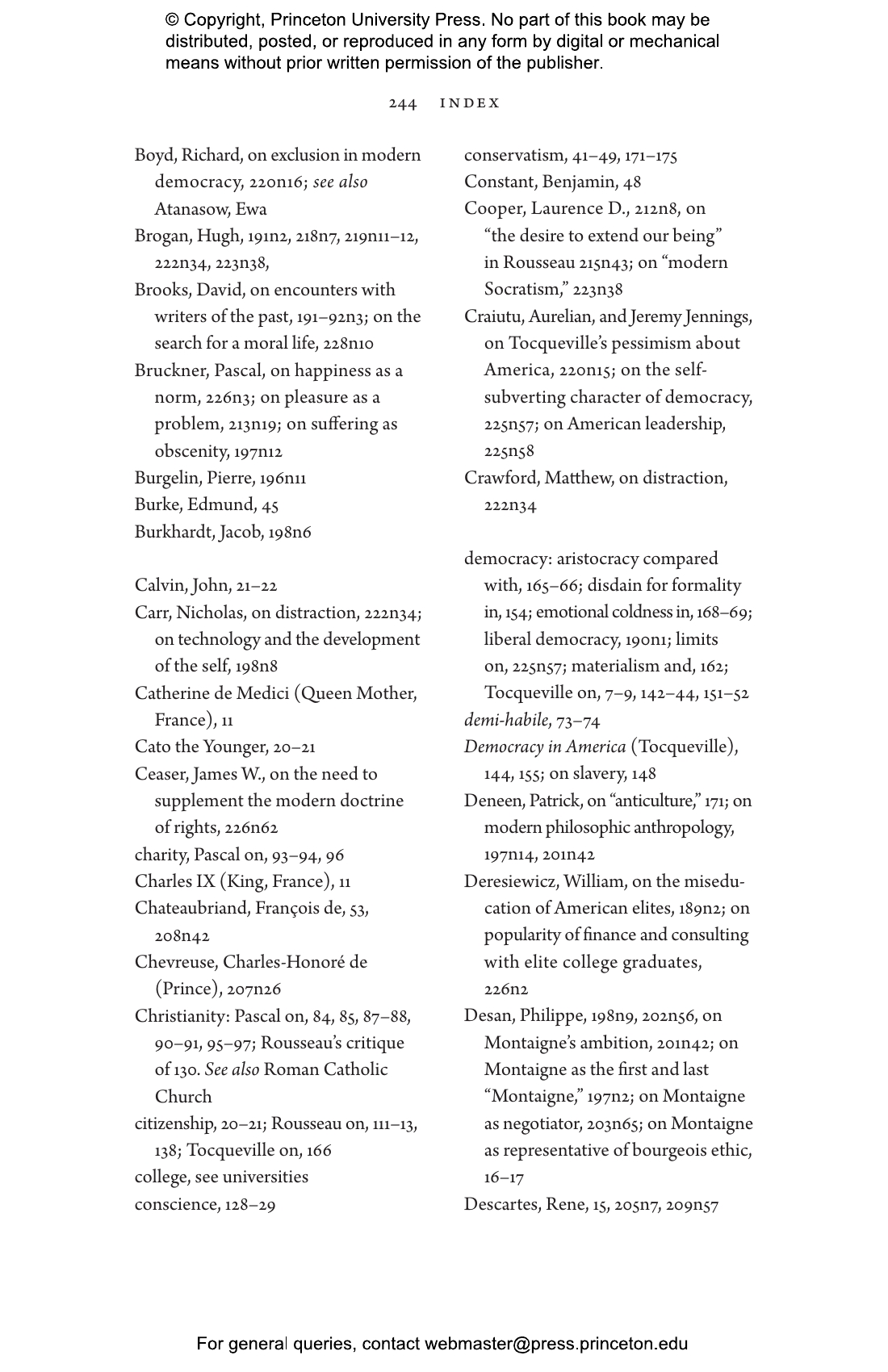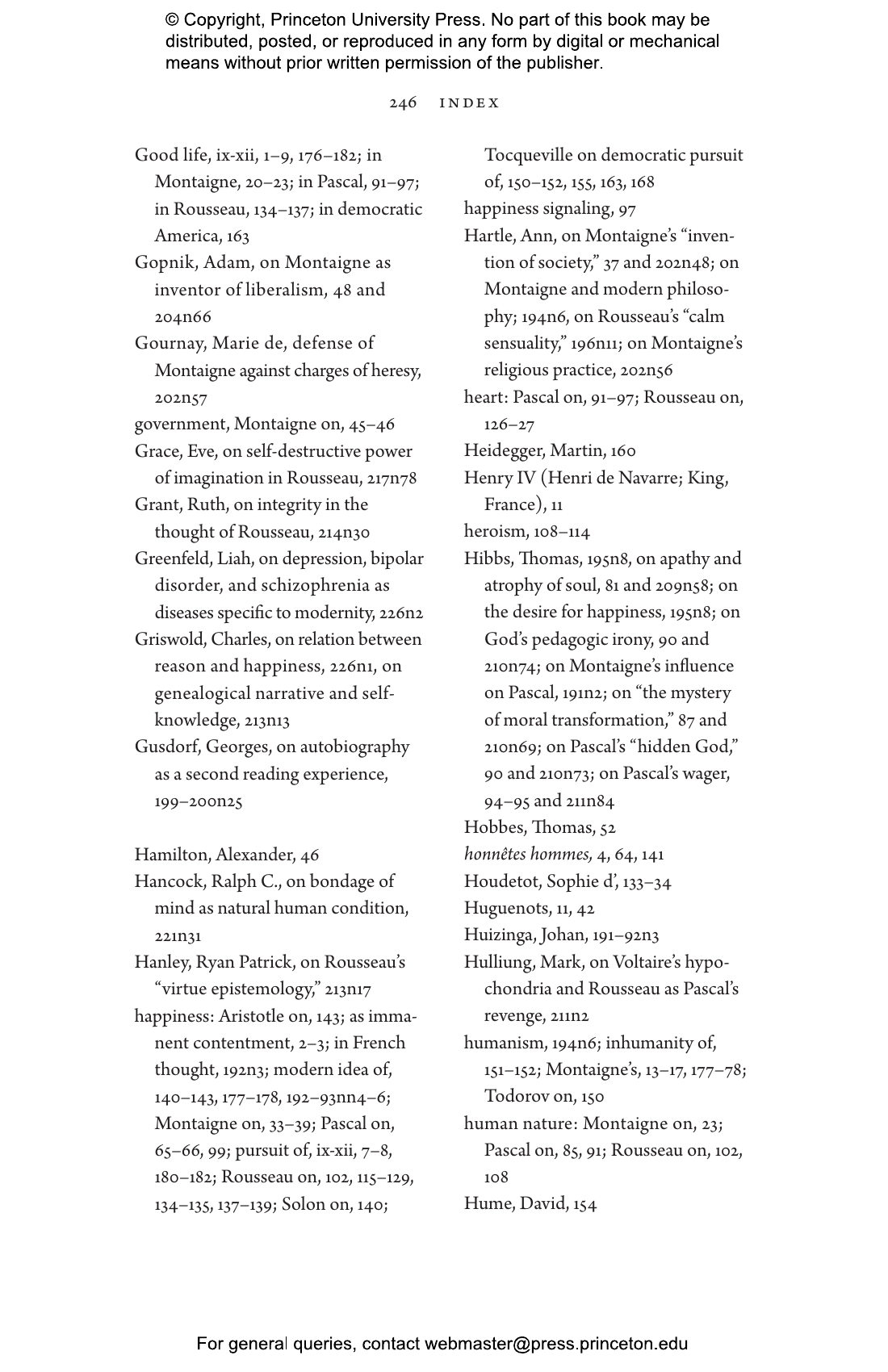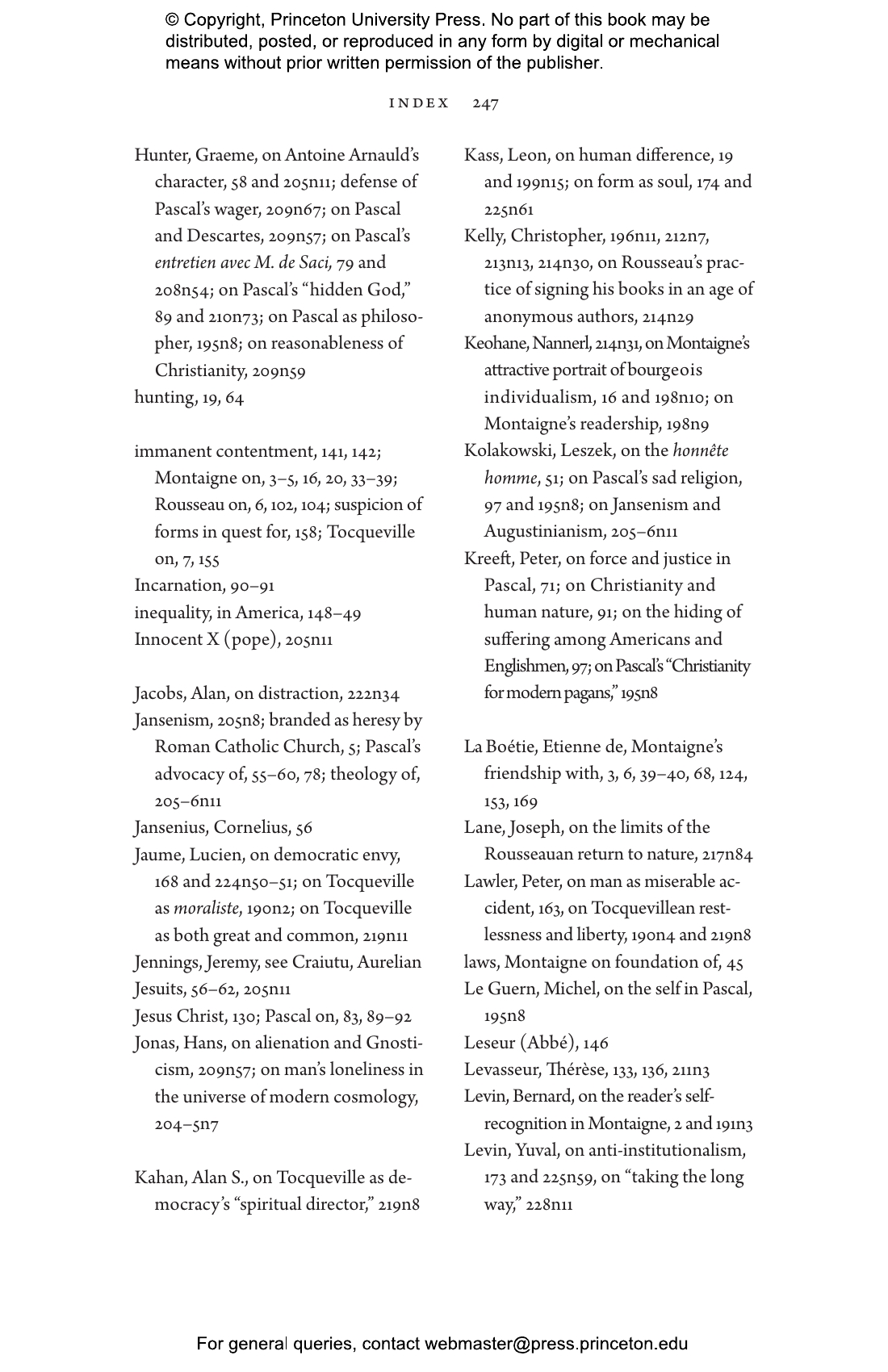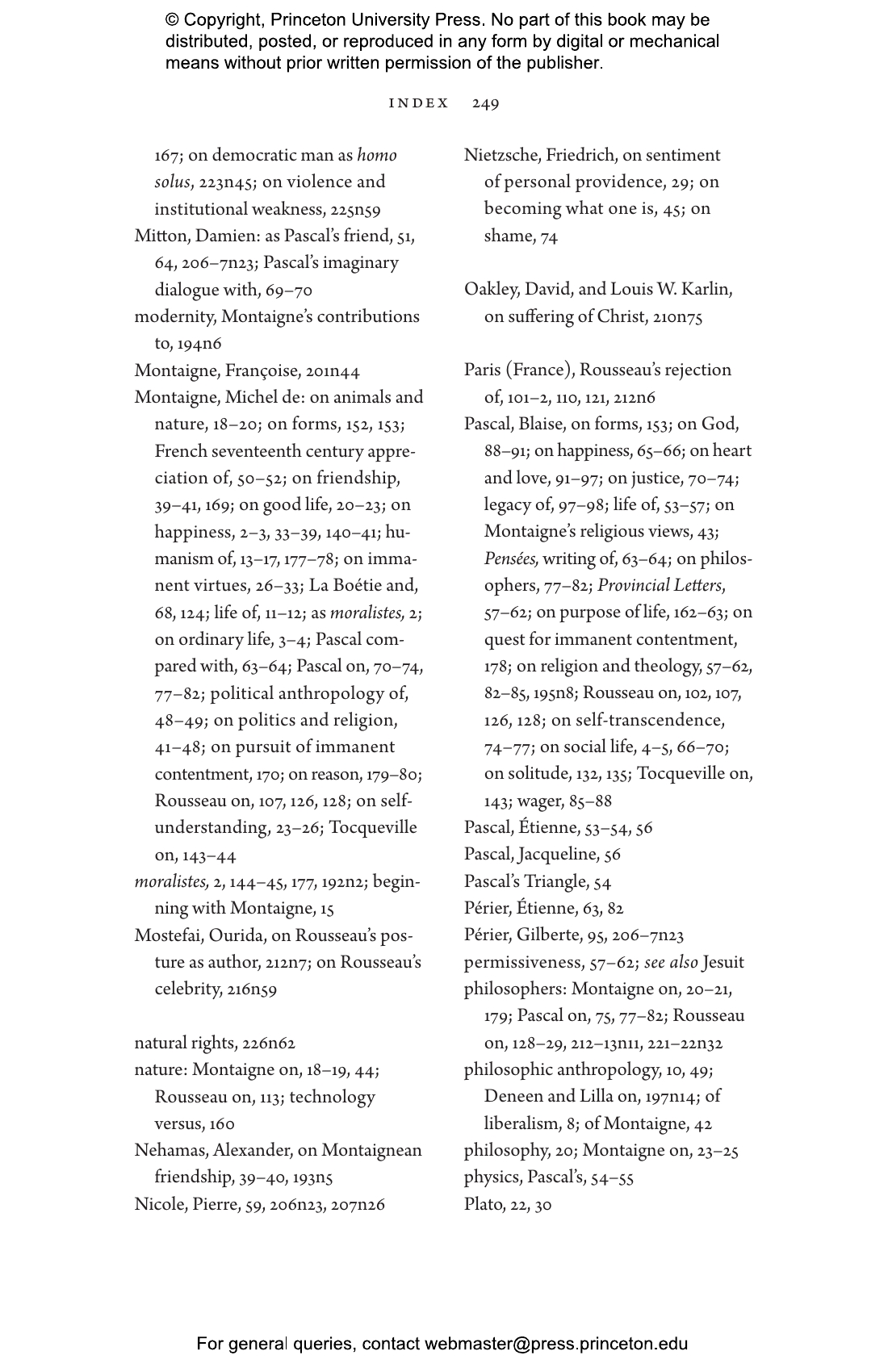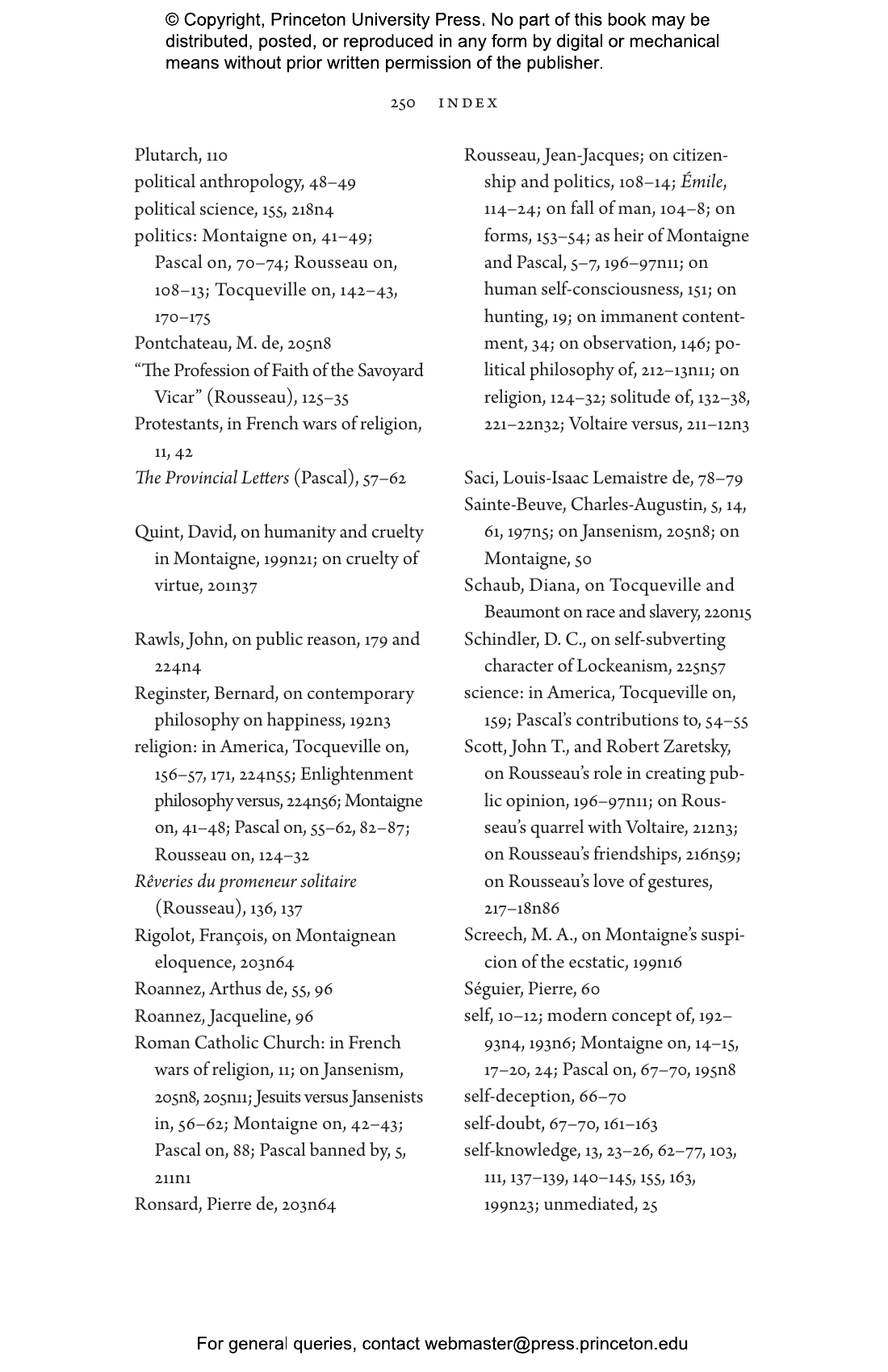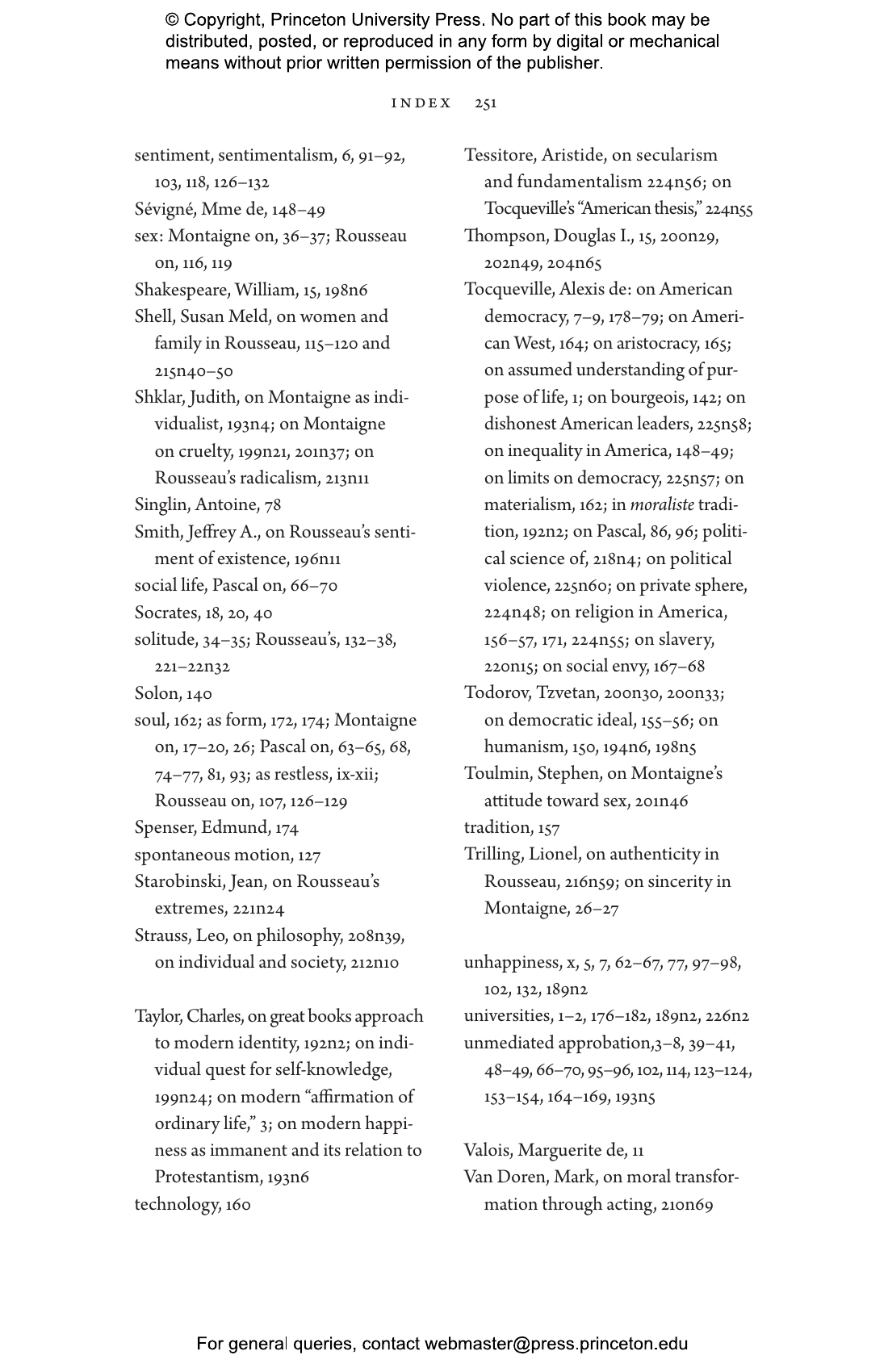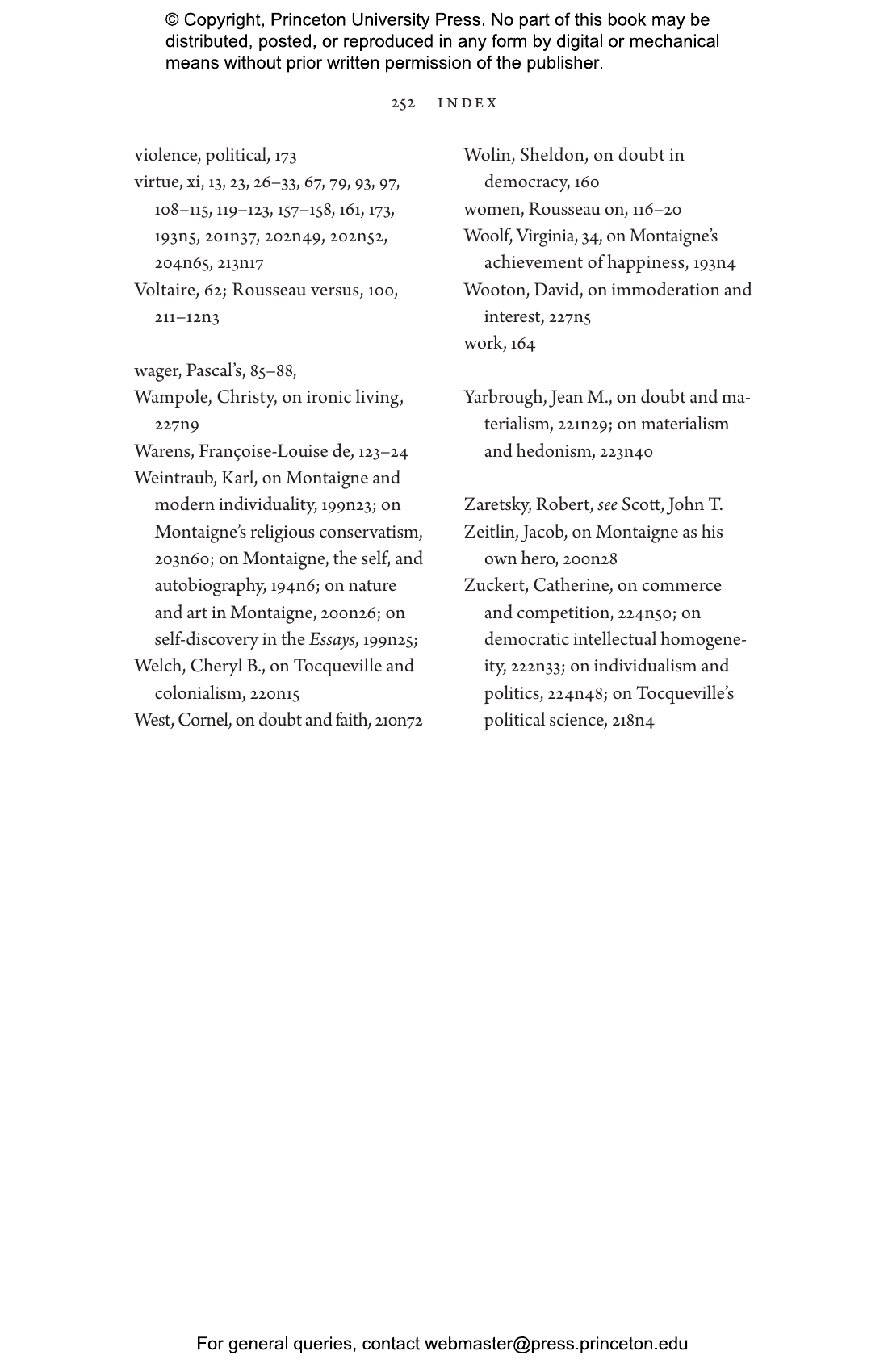We live in an age of unprecedented prosperity, yet everywhere we see signs that our pursuit of happiness has proven fruitless. Dissatisfied, we seek change for the sake of changeâeven if it means undermining the foundations of our common life. In Why We Are Restless, Benjamin and Jenna Storey offer a profound and beautiful reflection on the roots of this malaise and examine how we might begin to cure ourselves.
Drawing on the insights of Montaigne, Pascal, Rousseau, and Tocqueville, Why We Are Restless explores the modern vision of happiness that leads us on, and the disquiet that follows it like a lengthening shadow. In the sixteenth century, Montaigne articulated an original vision of human life that inspired people to see themselves as individuals dedicated to seeking contentment in the here and now, but Pascal argued that we cannot find happiness through pleasant self-seeking, only anguished God-seeking. Rousseau later tried and failed to rescue Montaigneâs worldliness from Pascalâs attack. Steeped in these debates, Tocqueville visited the United States in 1831 and, observing a people ârestless in the midst of their well-being,â discovered what happens when an entire nation seeks worldly contentmentâand finds mostly discontent.
Arguing that the philosophy we have inherited, despite pretending to let us live as we please, produces remarkably homogenous and unhappy lives, Why We Are Restless makes the case that finding true contentment requires rethinking our most basic assumptions about happiness.
"I have read many critiques of liberalism, but none so original as Why We Are Restless."âBarton Swaim, Wall Street Journal
"[Benjamin and Jenna Storeyâs] book is an education in the irony and complexity of the modern quest for contentment, and in the pre-modern sources required for any understanding of how to actually achieve meaningful contentment. . . . I canât recommend it enough."âYuval Levin, National Review
"[A] terrific book. Hard to understand modern secular culture if you don't know anything about Montaigne."âTimothy Keller, New York Times bestselling author
"Throughout this excellent book, the Storeys provide a model for how the thought of the past can be made vital."âDiana Schaub, Claremont Review of Books
"Unapologetically earnest . . . brave and countercultural."âJoe Moran, Times Higher Education
"Written in an engaging and compact style, [Why We Are Restless] is essential reading for all observers of the persistent, often hidden, but increasingly visible unhappiness of contemporary life. Benjamin and Jenna Storey have done us the service of restoring some of the deepest arguments about human happiness that lie at the roots of modern politics."âAdam Thomas, Public Discourse
""Why We Are Restless is a rich analysis of why we are unhappy and what we might begin to do about it.""âNathaniel Peters, Law & Liberty
"Beautifully written and carefully argued, itâs as searching as it is subtle. . . . [Why We Are Restless] does a magnificent job of summarizing four hugely important thinkers with impressive clarity, wit, and brevity and raises some profound questions about the modern quest for happiness in the process.
"âAndrew Wilson, Gospel Coalition
"A powerful case that the invention of âimmanent contentmentâ in early modern France has everything to do with the infinite restlessness of the postmodern United States."âDelaney Thull, Fare Forward
"A great read for pastors, theologians, and Christians who want to think deeply and critically about the culture."âStephen Roberts, Modern Reformation
"Culturally significant. . . . this study is a rich resource for reflection."âParadigm Explorer
"Excellent. . . . Why We Are Restless stands out among other books like it by answering the question implied by its title with rigor and charity."âMatt Dinan, Hedgehog Review
âBenjamin and Jenna Storeyâs delightful Why We Are Restless belongs on the shelf of thoughtful, accessible books on human happiness like Matthew Crawfordâs Shop Class as Soulcraft and Sarah Bakewellâs How to Live. Through the lens of four French thinkers, the Storeys explore perennial questions about contentment and examine some of the most compelling responses put forward over the centuries. They are teachers in the best sense, inviting us to understand ourselves better than we do.ââMark Lilla, author of The Once and Future Liberal
âToday, so many of us are unable to sit still; obsessed with achievement, we are unable to think clearly about the purpose of our lives. The Storeys diagnose our ills as built into our implicit conception of happinessâwe have sold ourselves short by aspiring to comfort and prosperity rather than to heroism or transcendent sources of wisdom or salvation. This challenging and provocative book provides us with substantial resources to look more closely at ourselvesâall the while offering clarity, healing, and hope, wherever our reflections lead.ââZena Hitz, author of Lost in Thought: The Hidden Pleasures of an Intellectual Life
âWhy We Are Restless is a tour de force of philosophical genealogy. The sour disquiet of our lives, the foreboding of our political moment, the pervasive sense that we have come up against some real existential stuffâit all comes into focus here as the denouement of a conversation that began over four hundred years ago. In retracing turns taken in the history of the West, the Storeys indicate intriguing paths out of the intellectual cul-de-sac we have wandered into.ââMatthew B. Crawford, author of Shop Class as Soulcraft
âWe moderns face a paradox. The freedom and abundance our societies have brought us only serve to make us discontented. In Why We Are Restless, Benjamin and Jenna Storey unearth the philosophical roots of this predicament. Their discussions of Montaigne, Pascal, Rousseau, and Tocqueville are unfailingly lucid, humane, accessible, and engaging. This is popularization in the best sense. It is relevant, eloquent, and never talks down to the reader.ââWilliam Deresiewicz, author of Excellent Sheep
âIn this elegantly argued and beautifully written book, Benjamin and Jenna Storey lay bare the intellectual root of our psychic distress: a shrunken view of our humanity, ignorant of the soulâs true longings. In tracing the history of the modern âself,â the Storeys show the causes of our impoverished self-understanding and liberate us to choose a richer alternative. A most important book.ââLeon R. Kass, professor emeritus, Committee on Social Thought and the College, University of Chicago
âWhy We Are Restless refuses to settle for easy and superficial solutions. Storey and Storey set out the deep tensions within each philosopherâs thought, and why they cannot be brushed aside.ââAnn Hartle, Emory University
âAbsorbing, elegant, and stimulating, Why We Are Restless possesses an easy fluency and understated wit that are as rare as they are delightful.ââWilfred McClay, author of The Masterless
